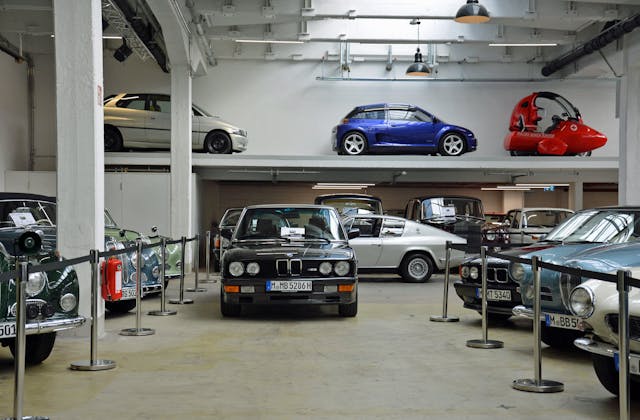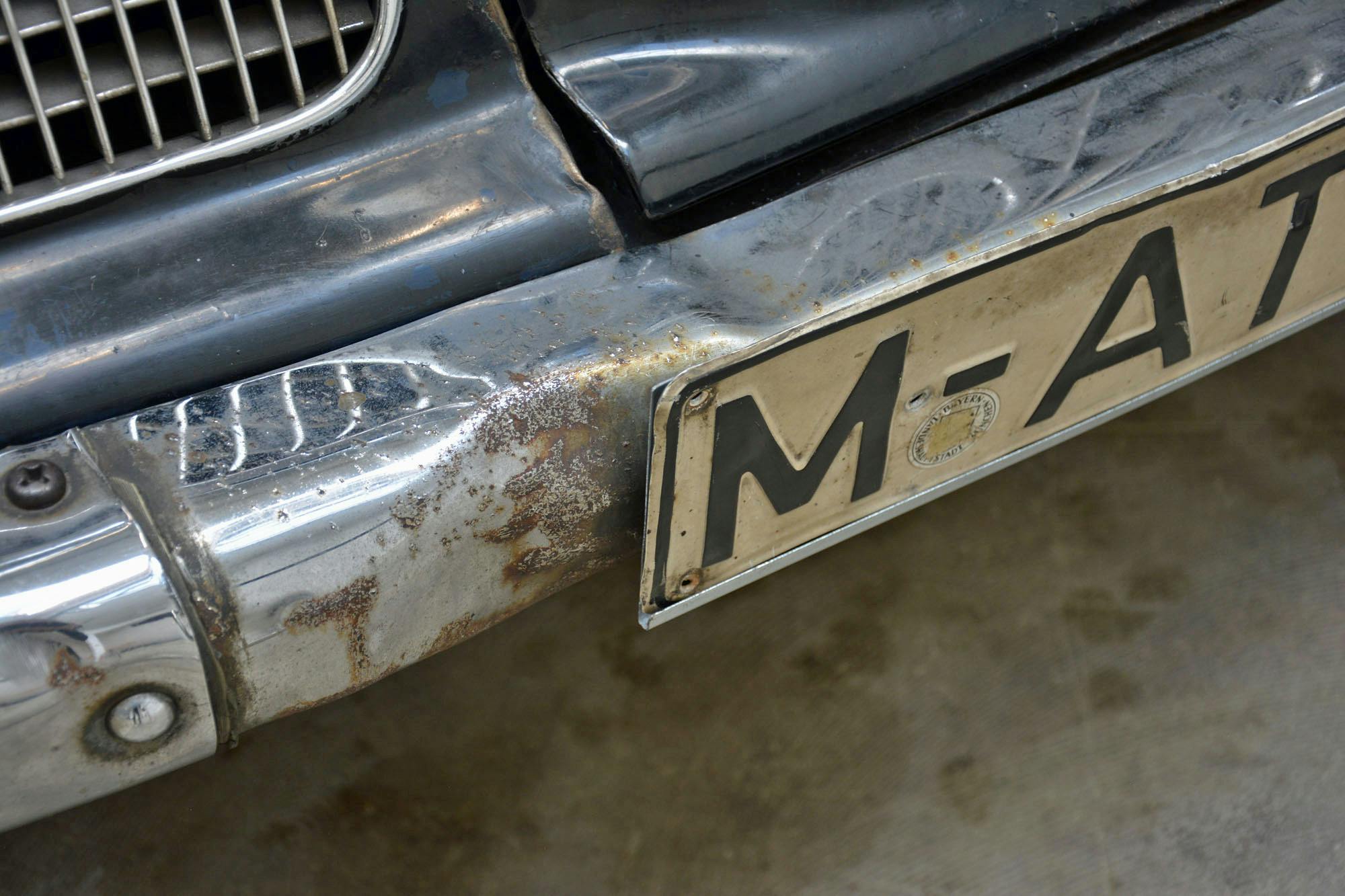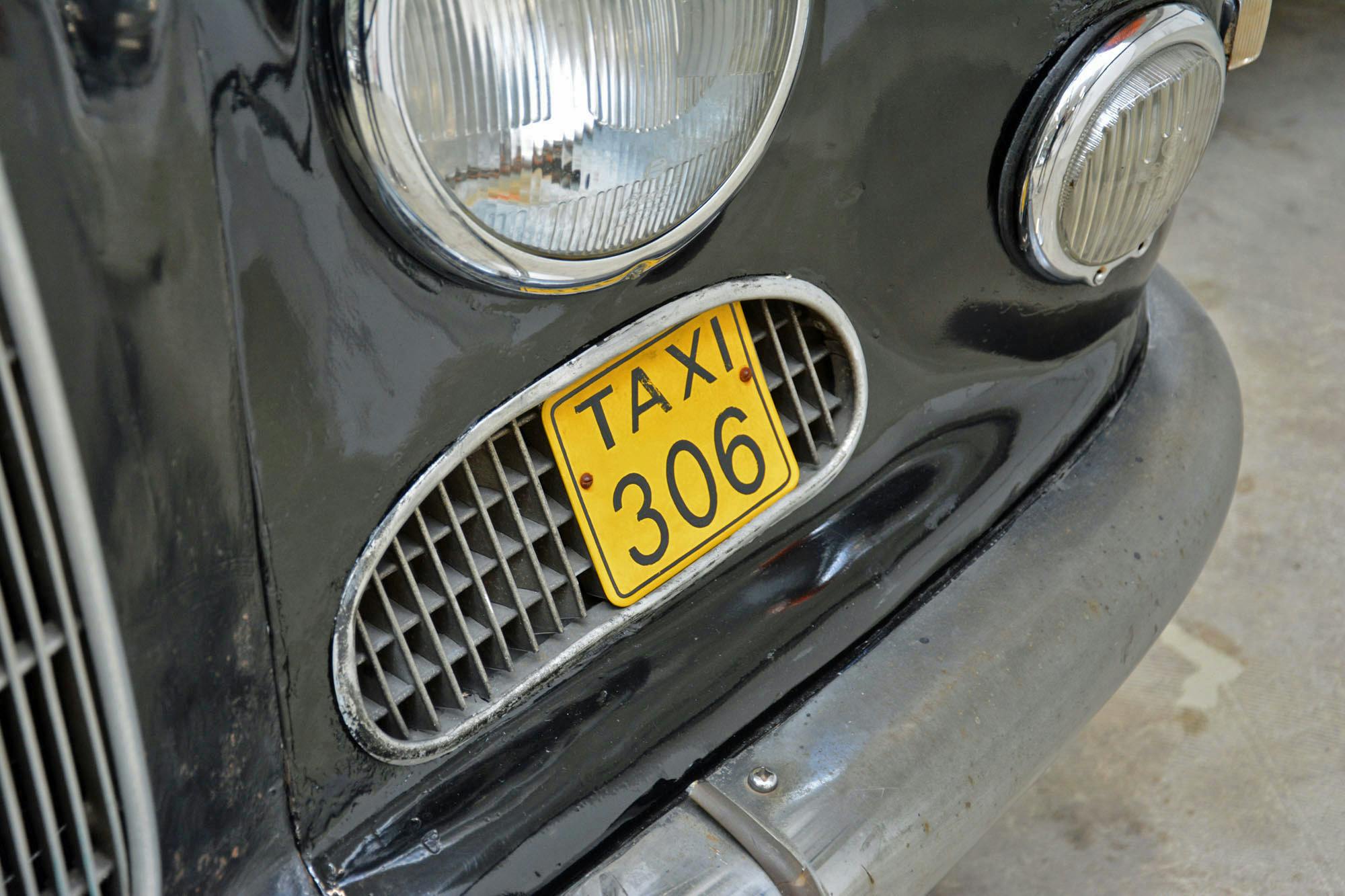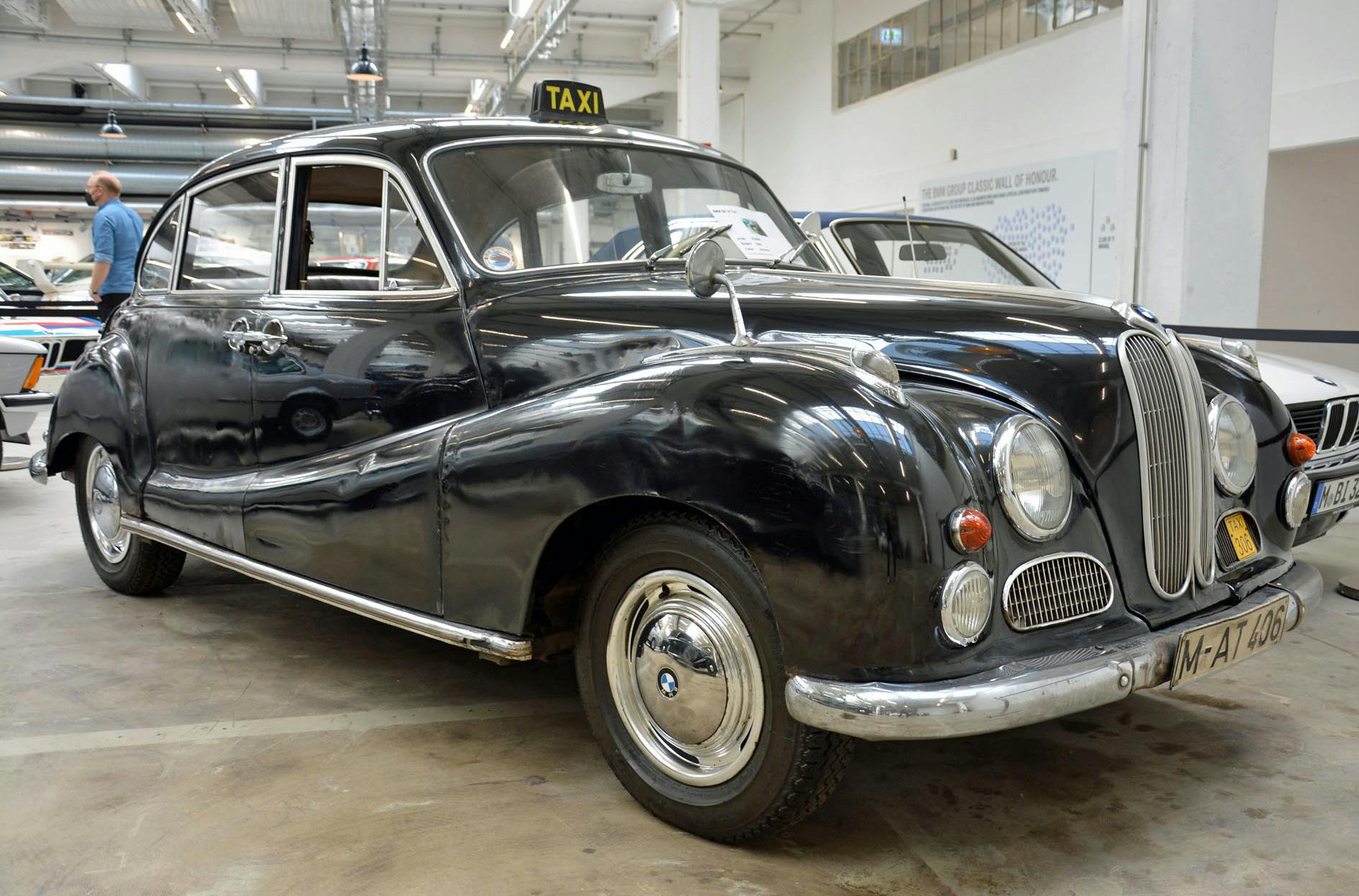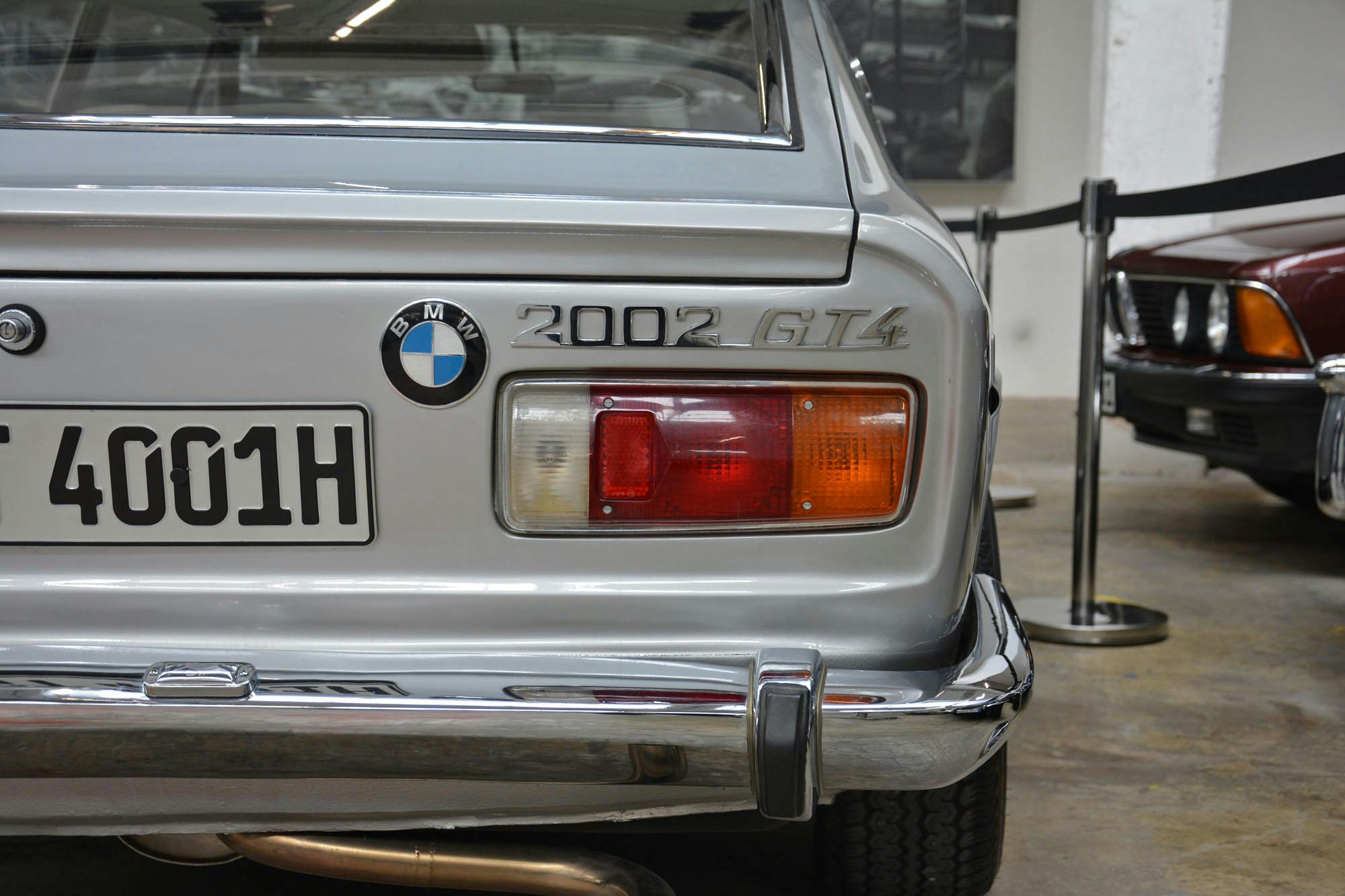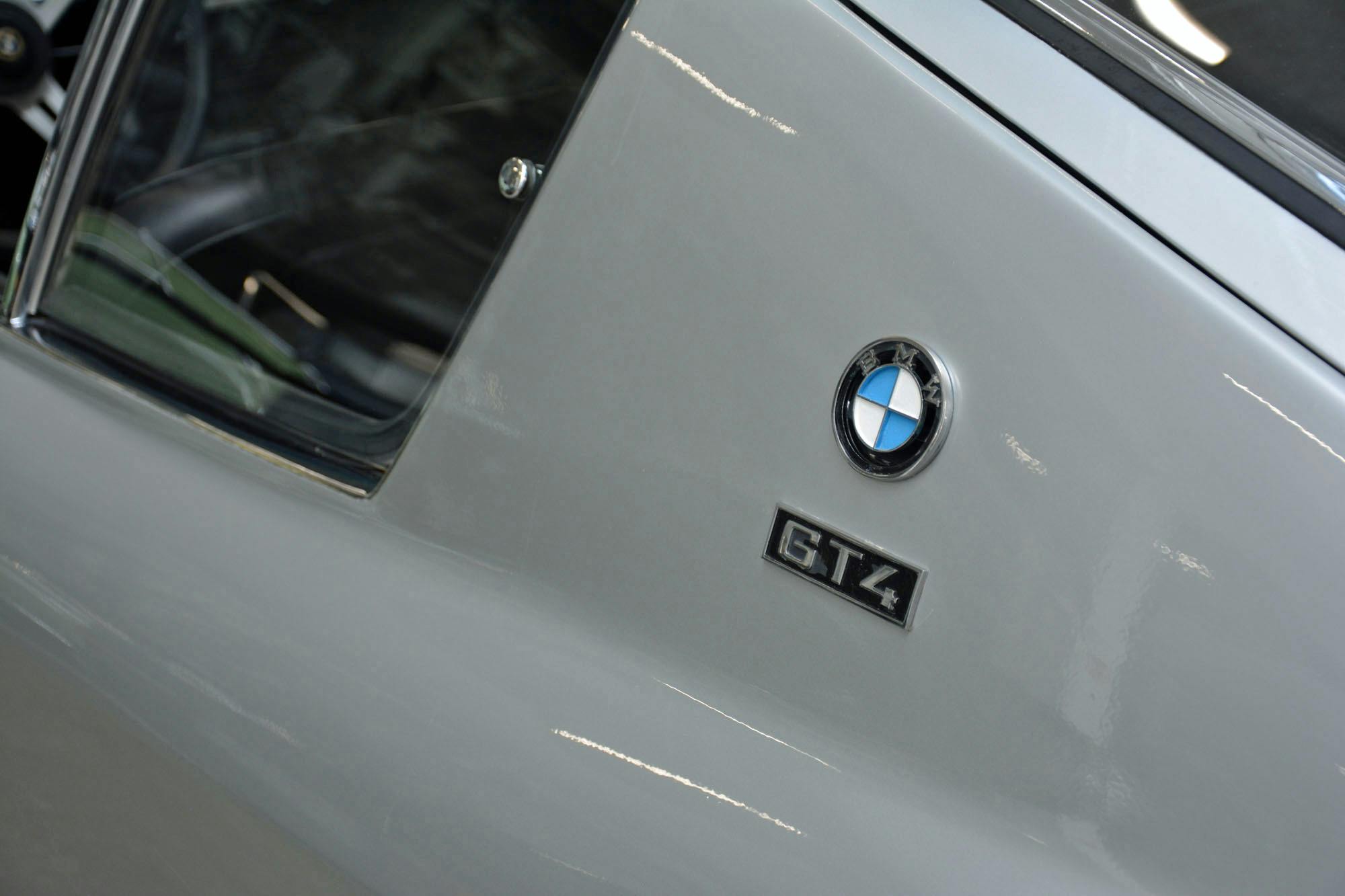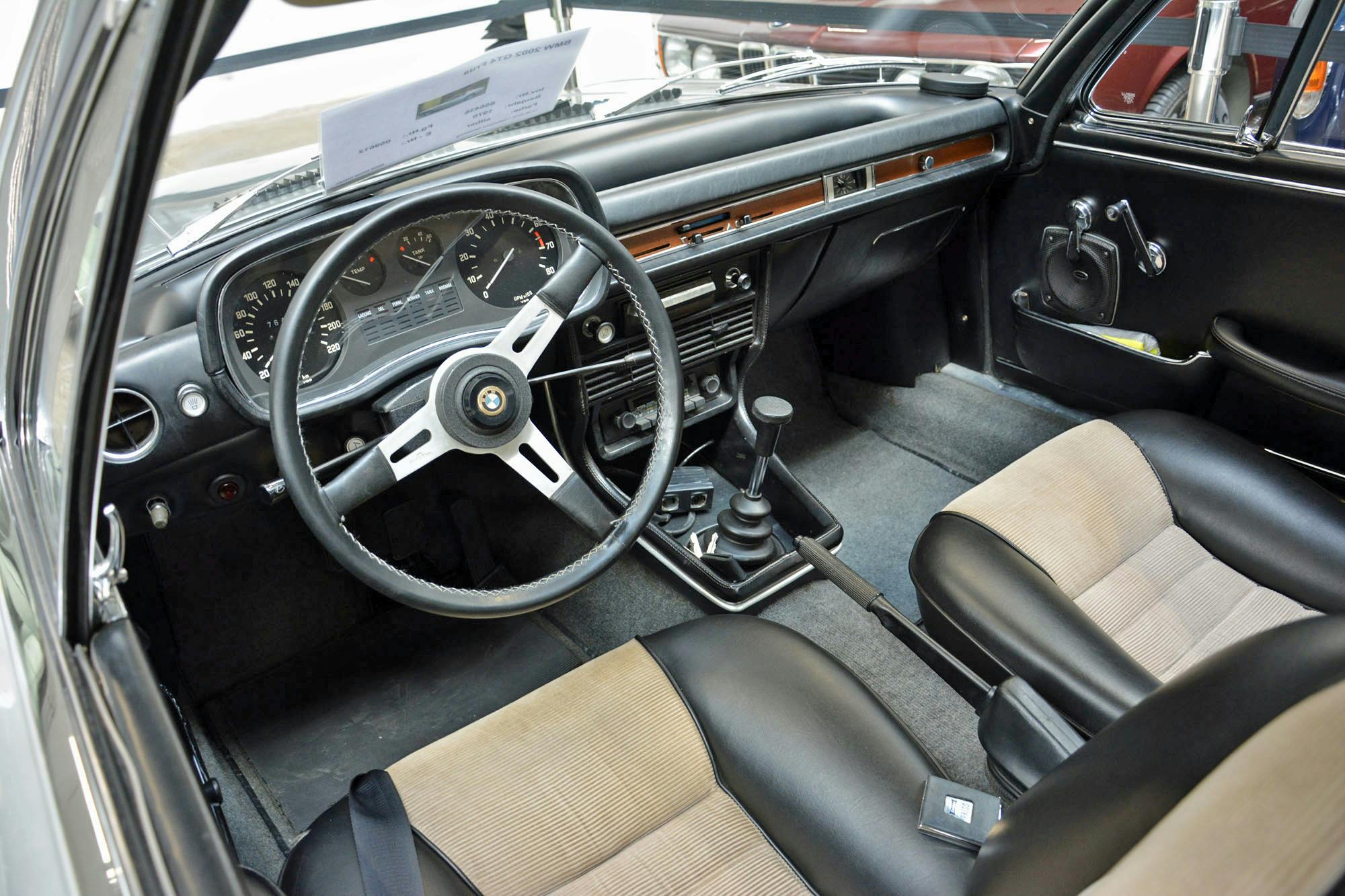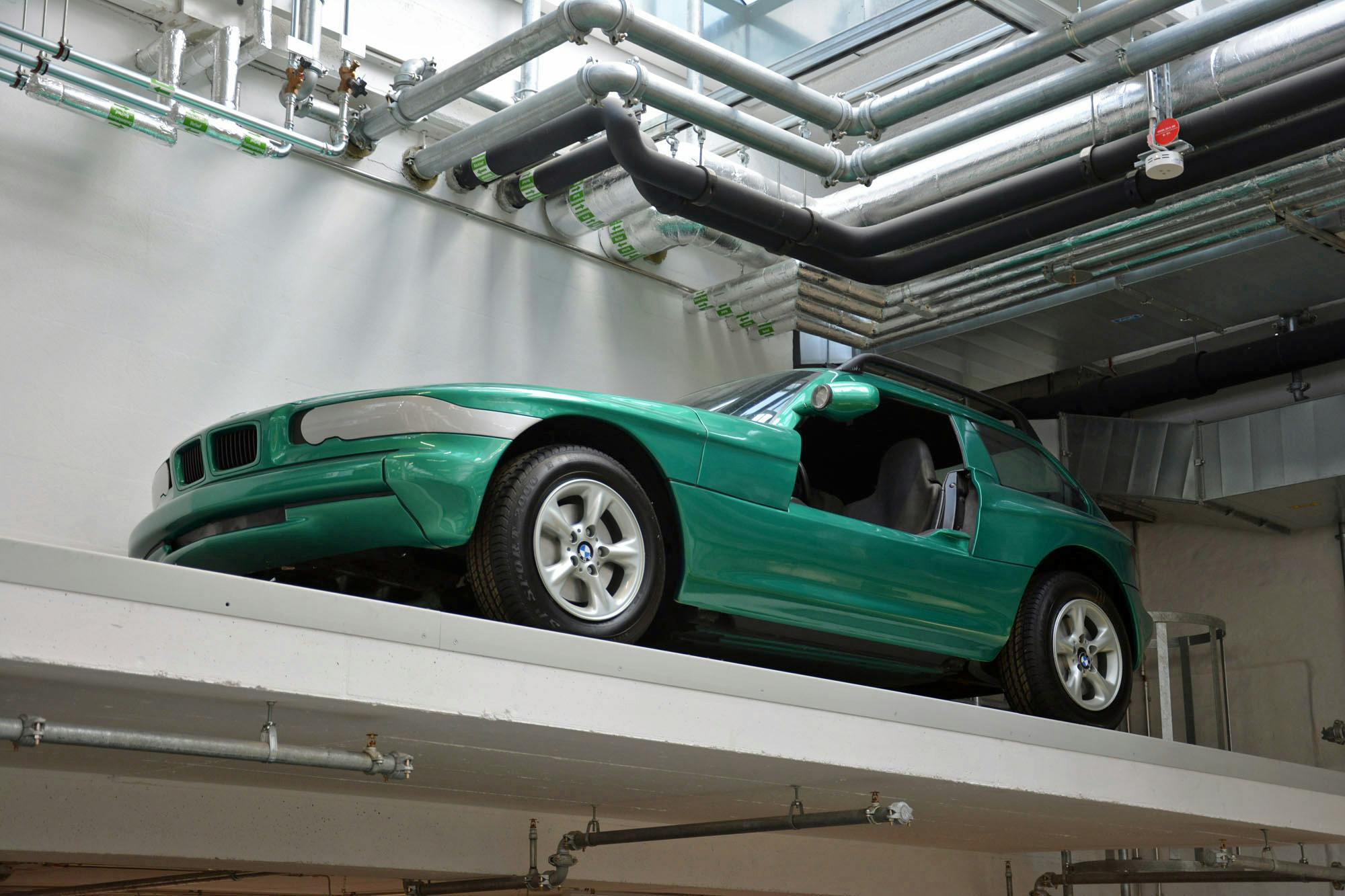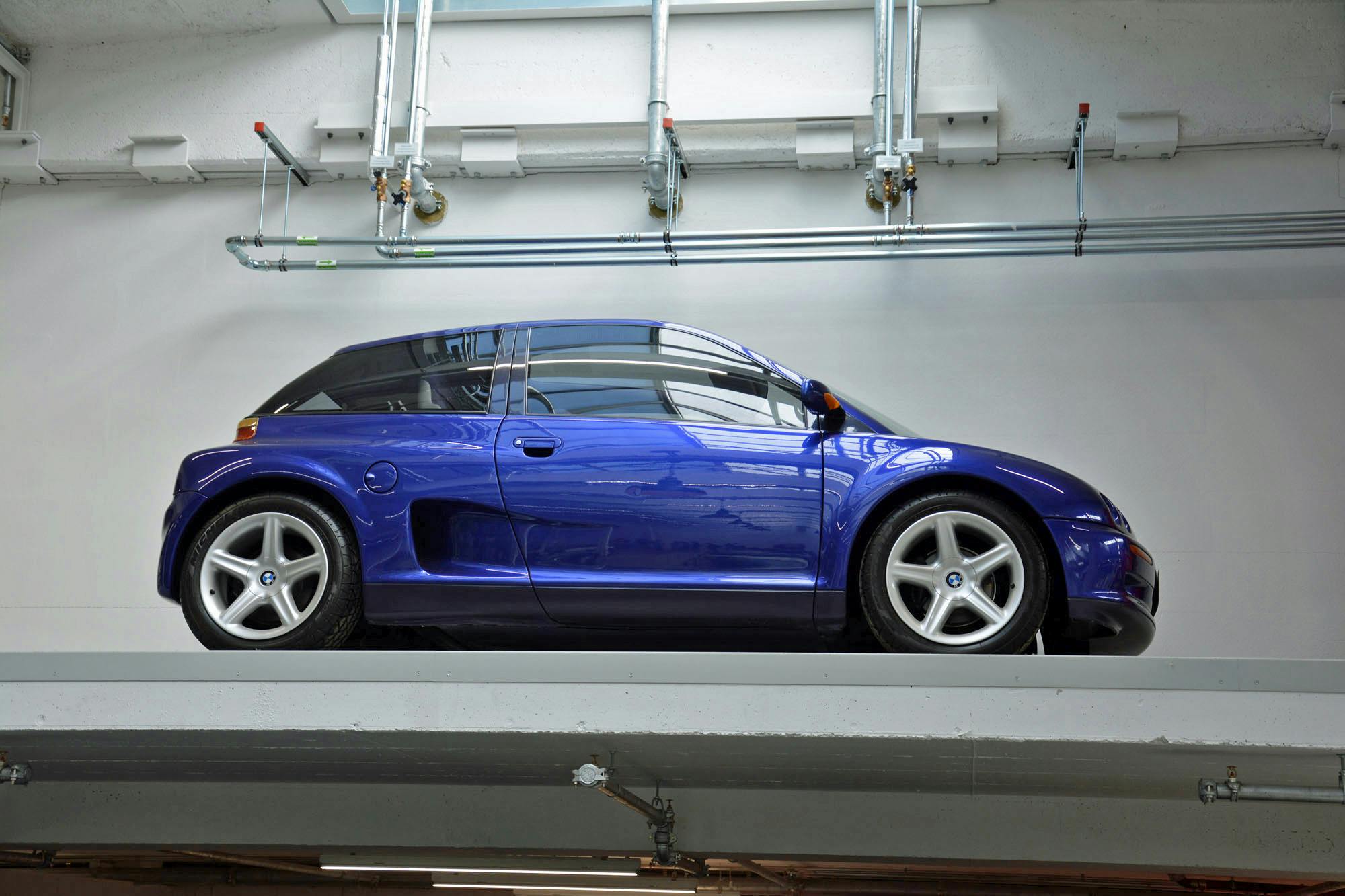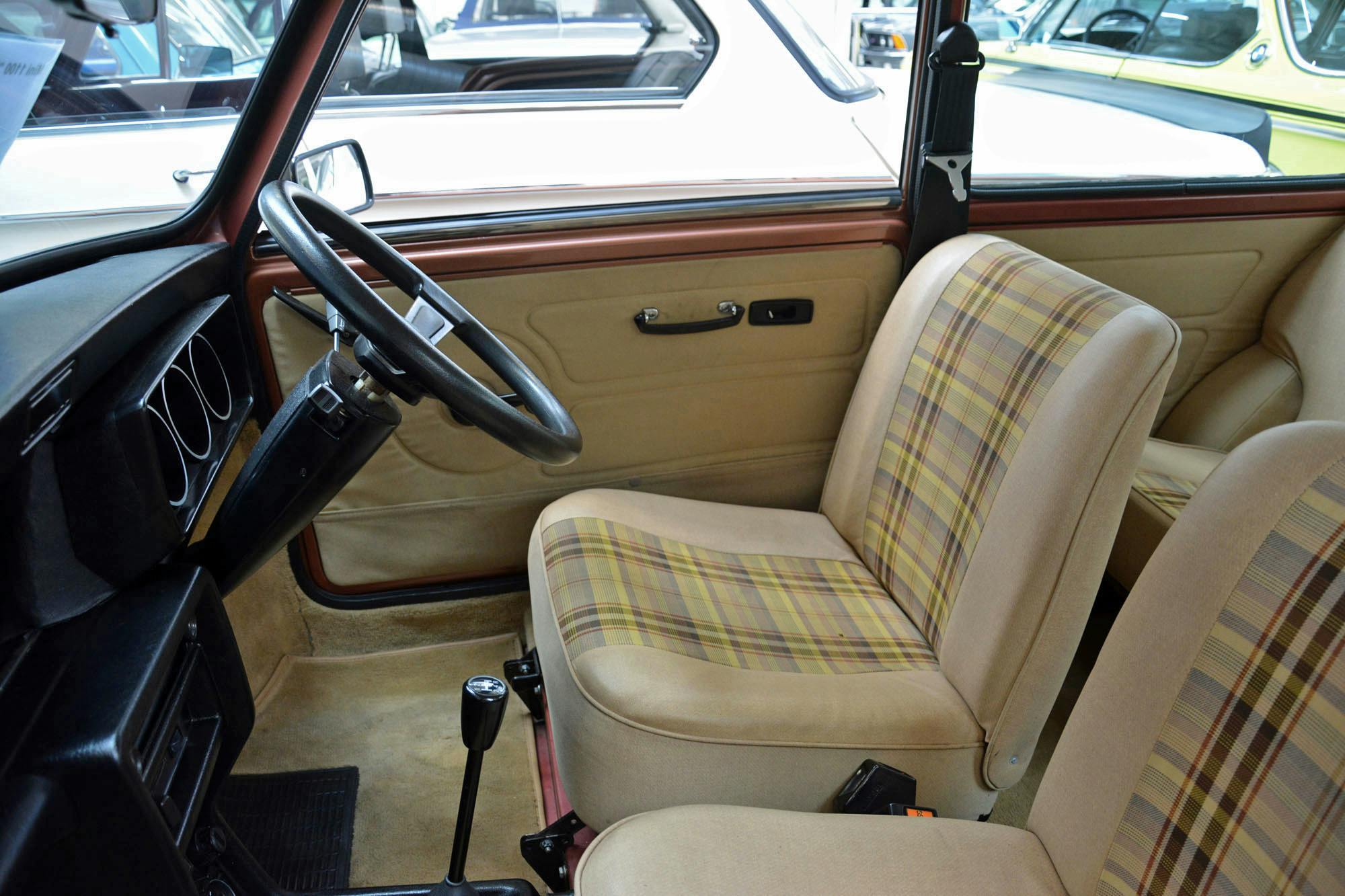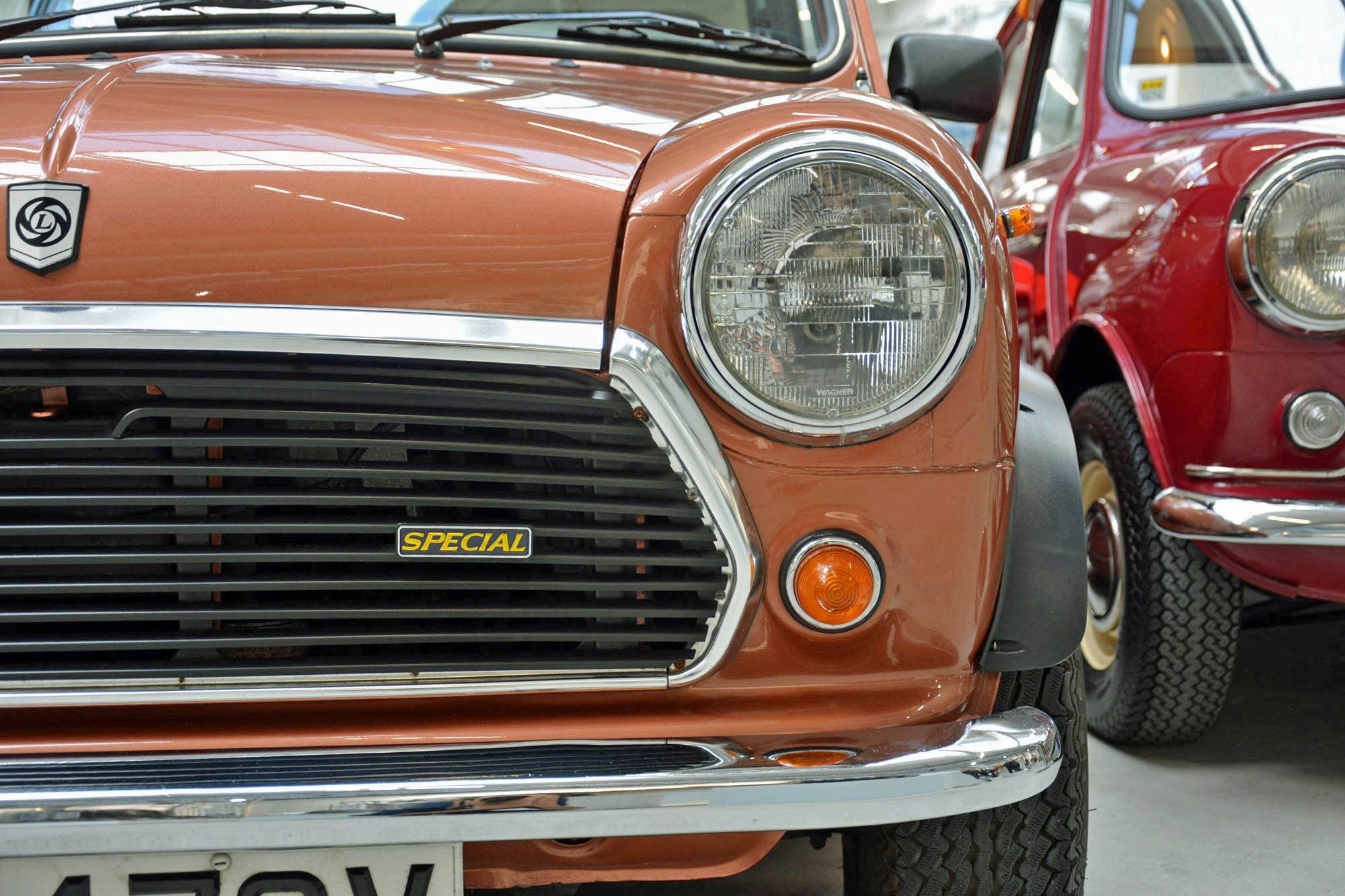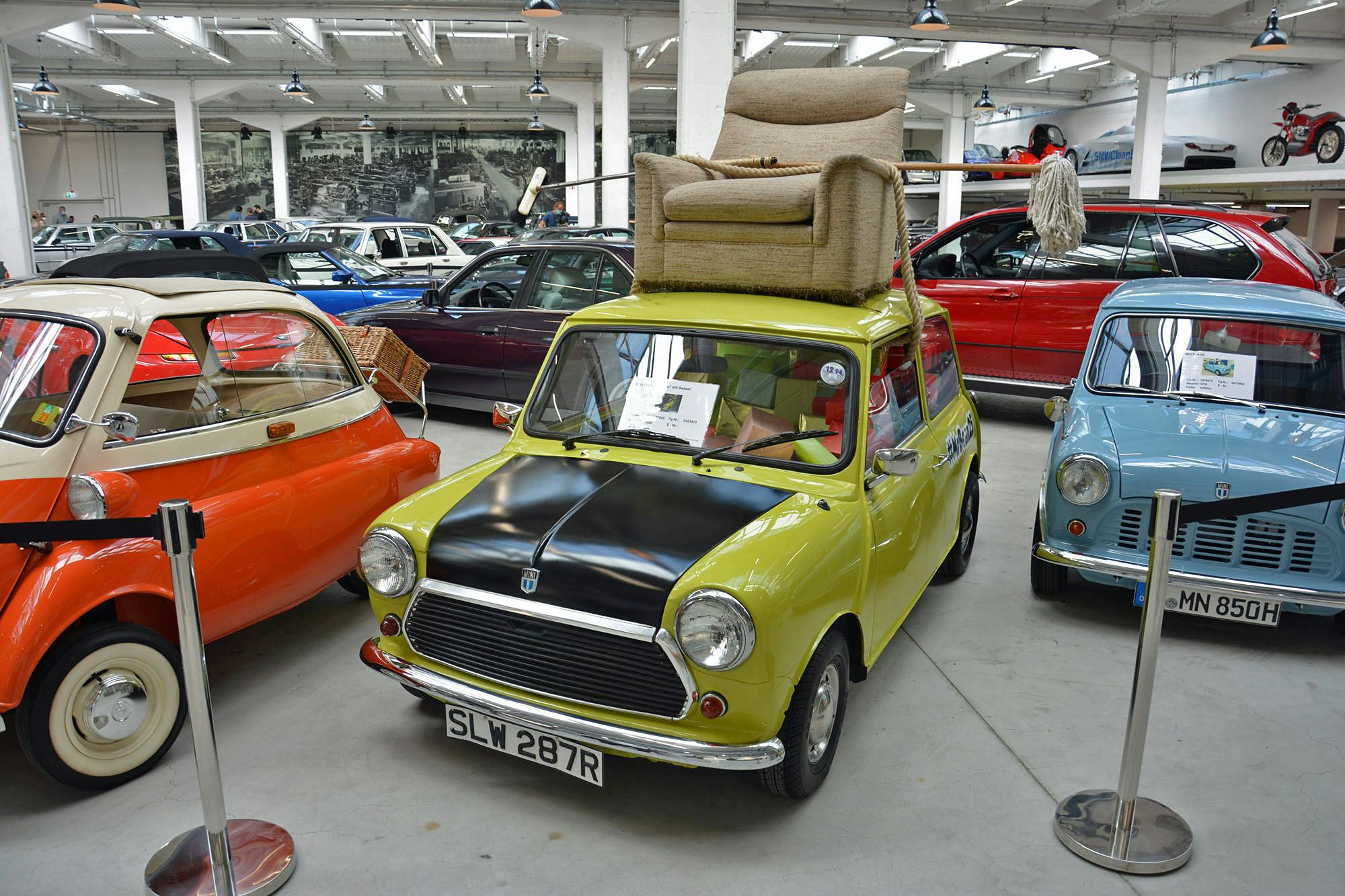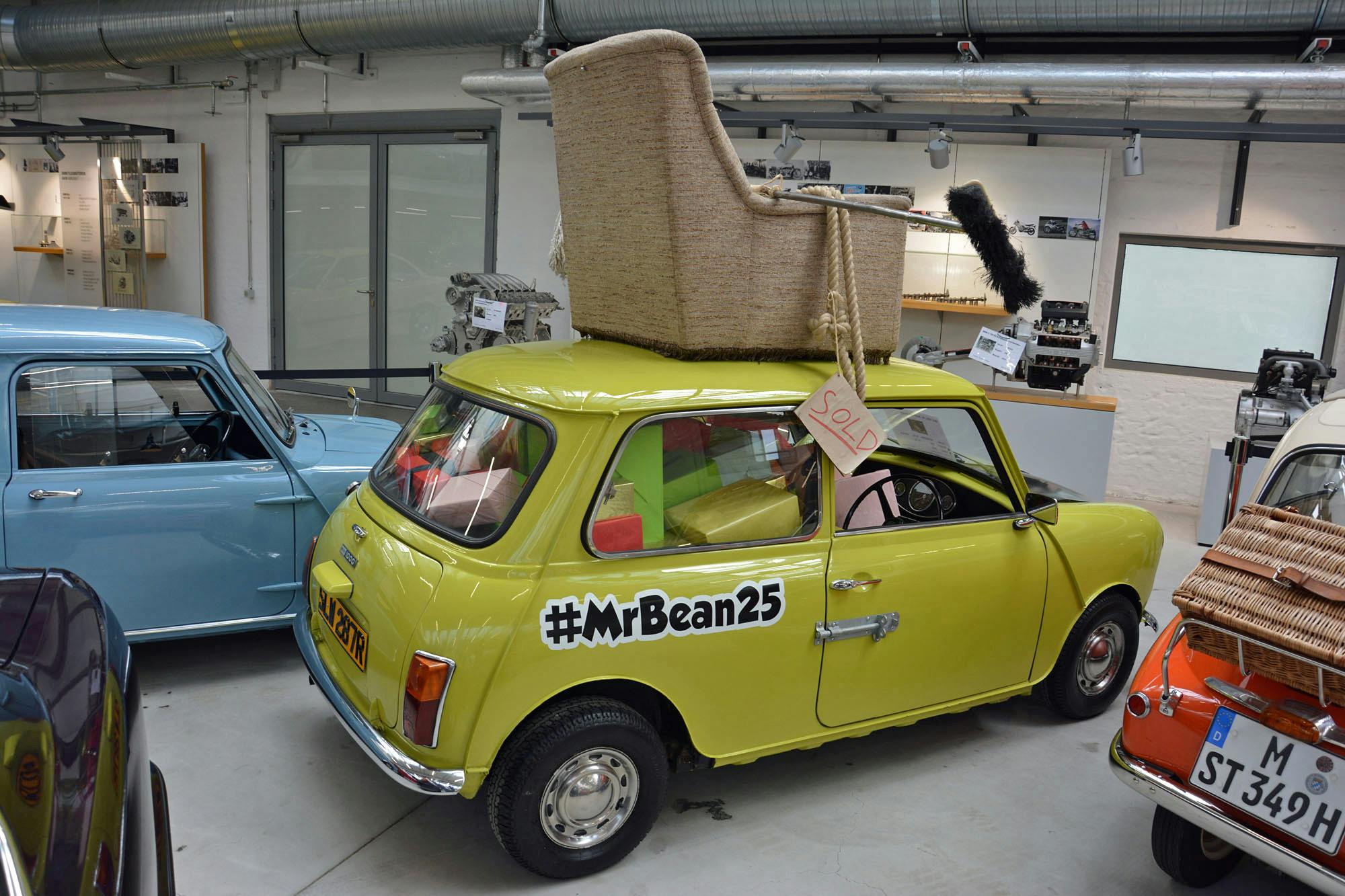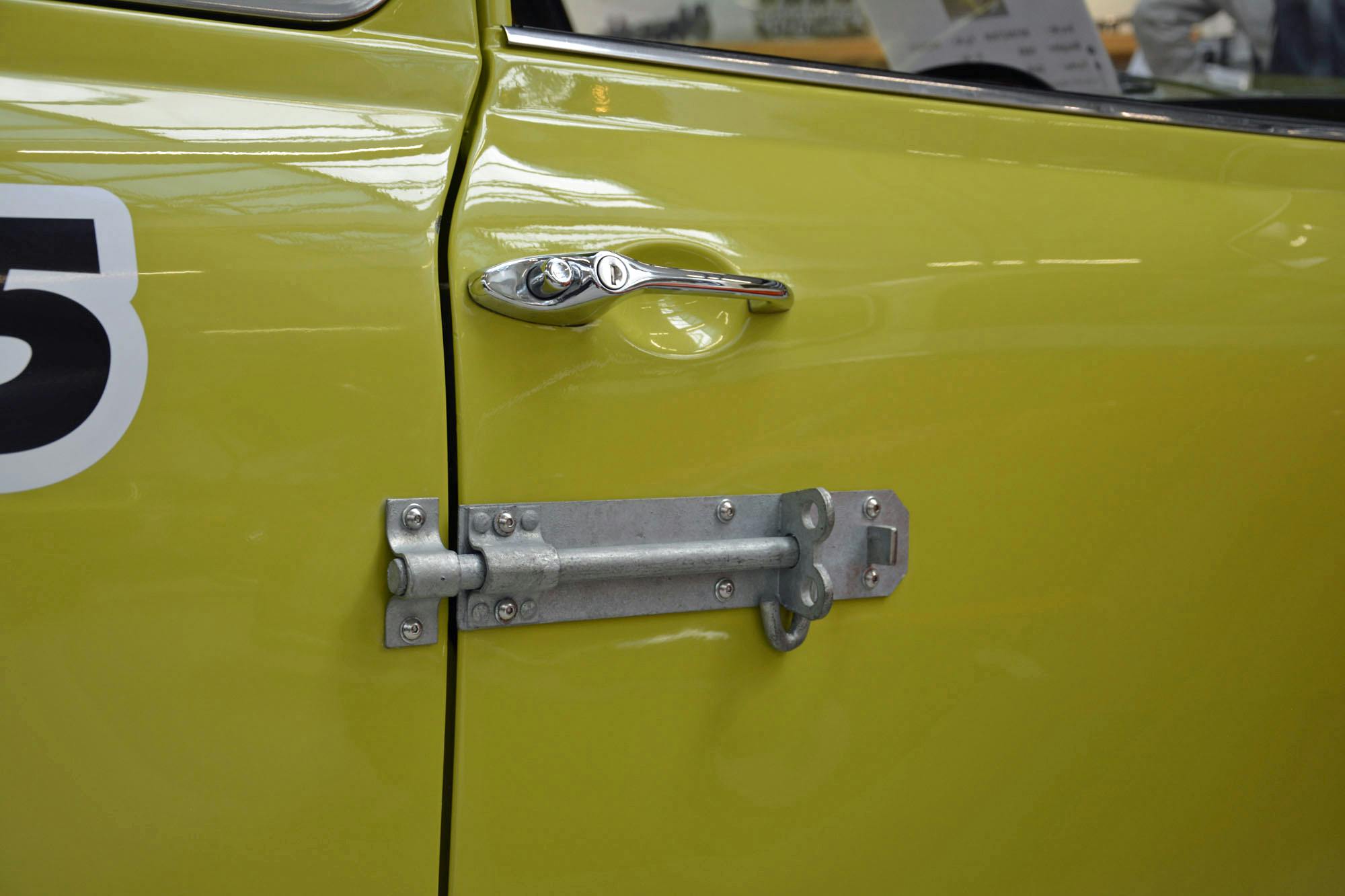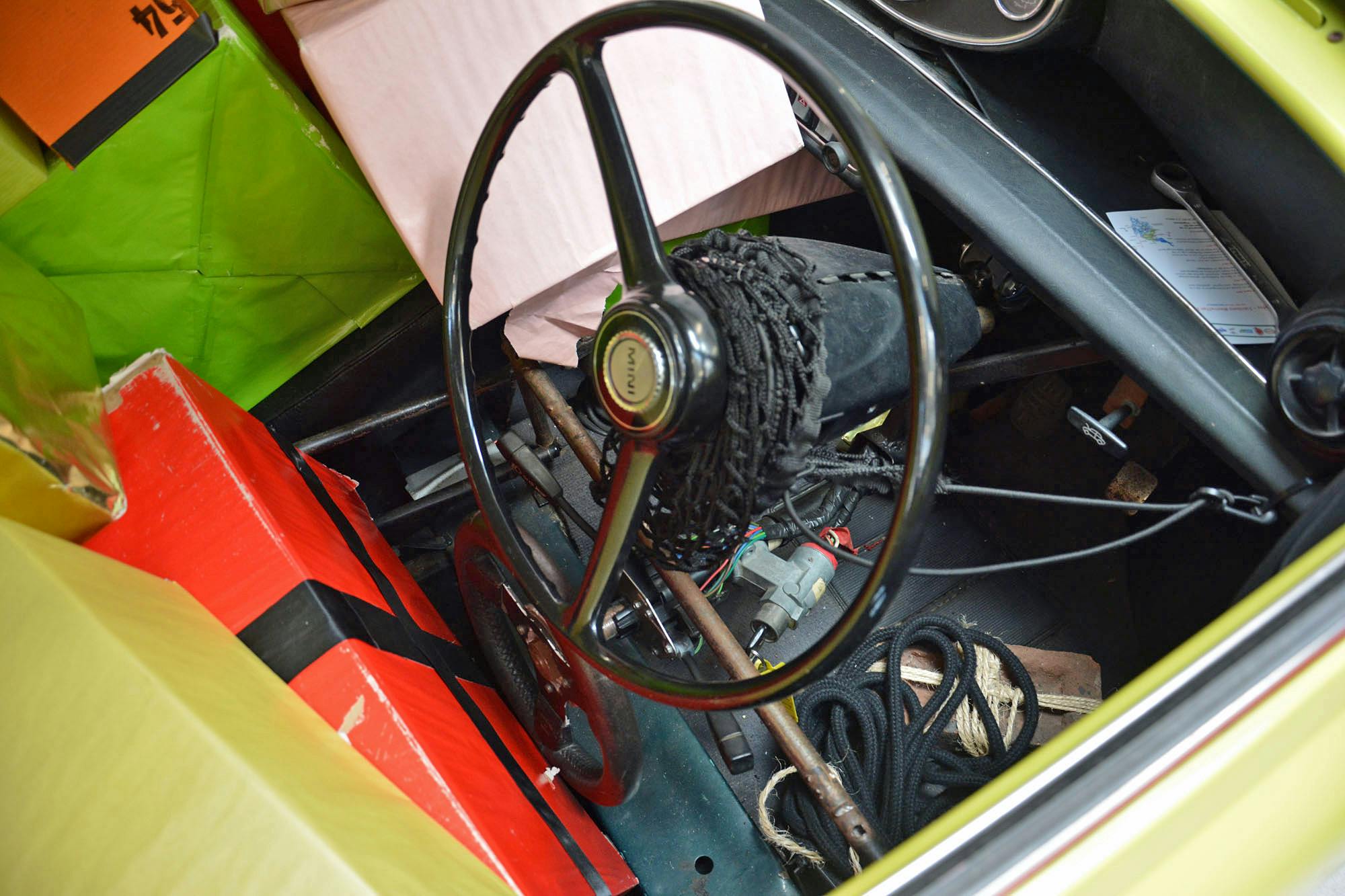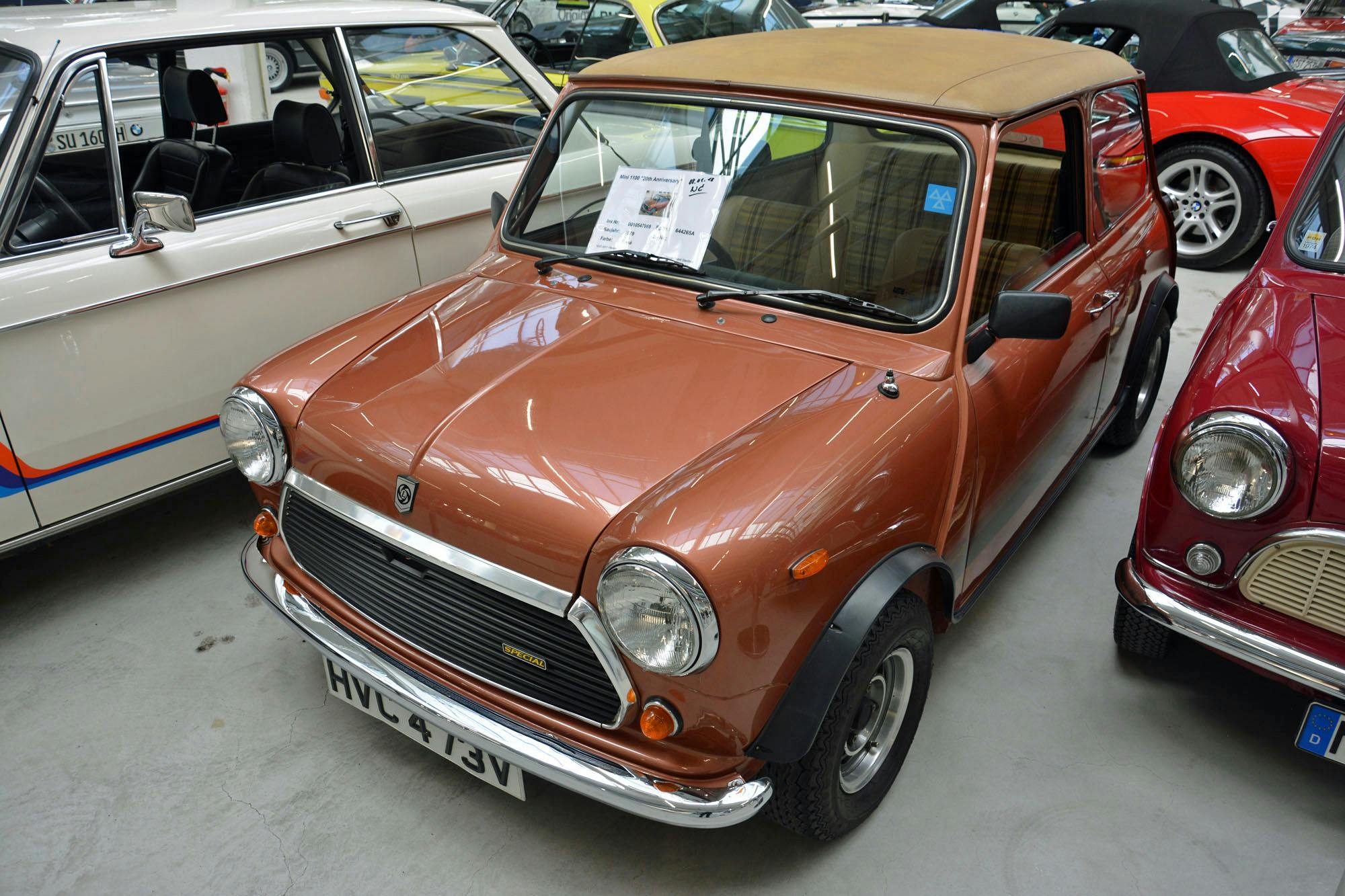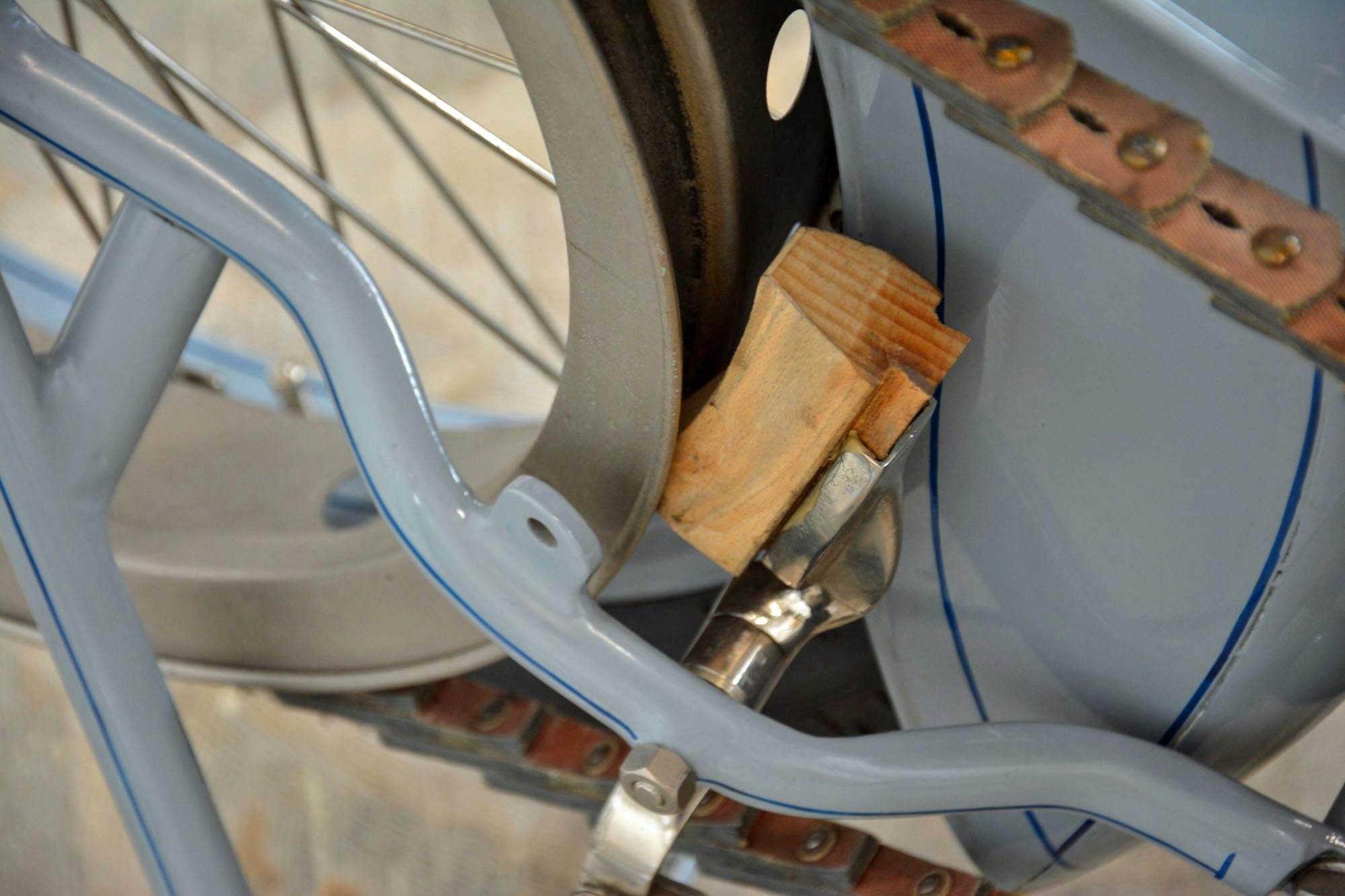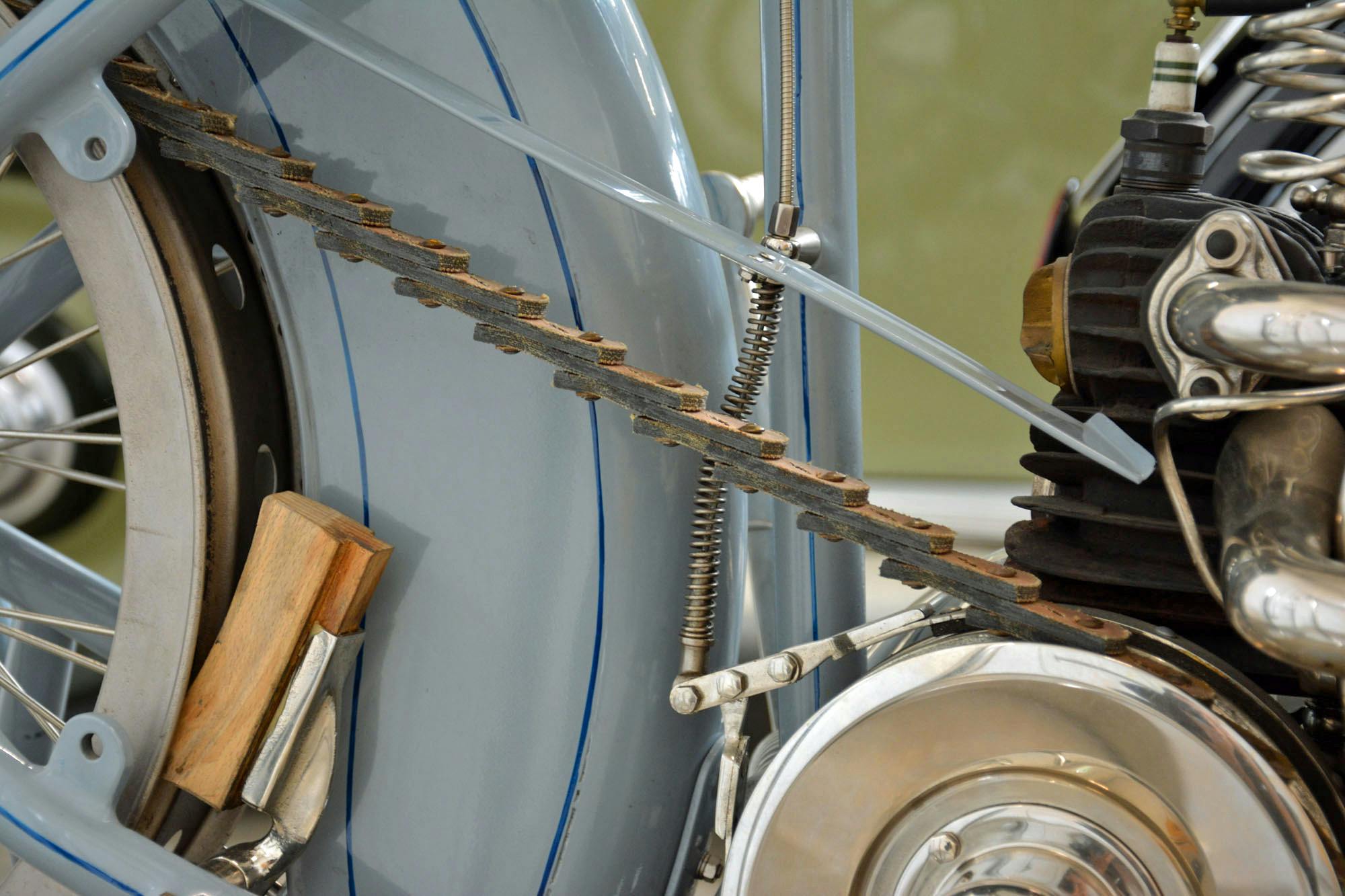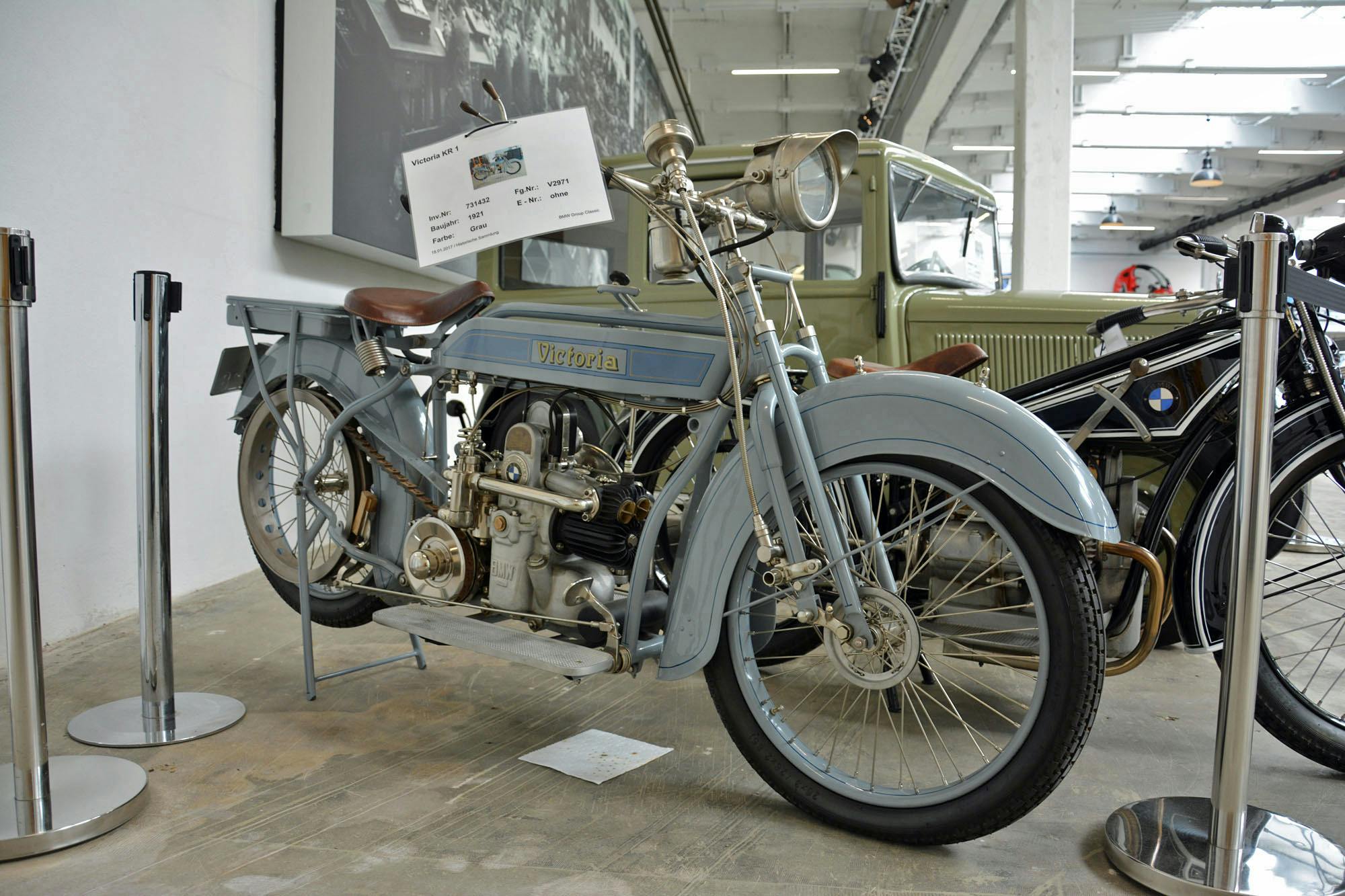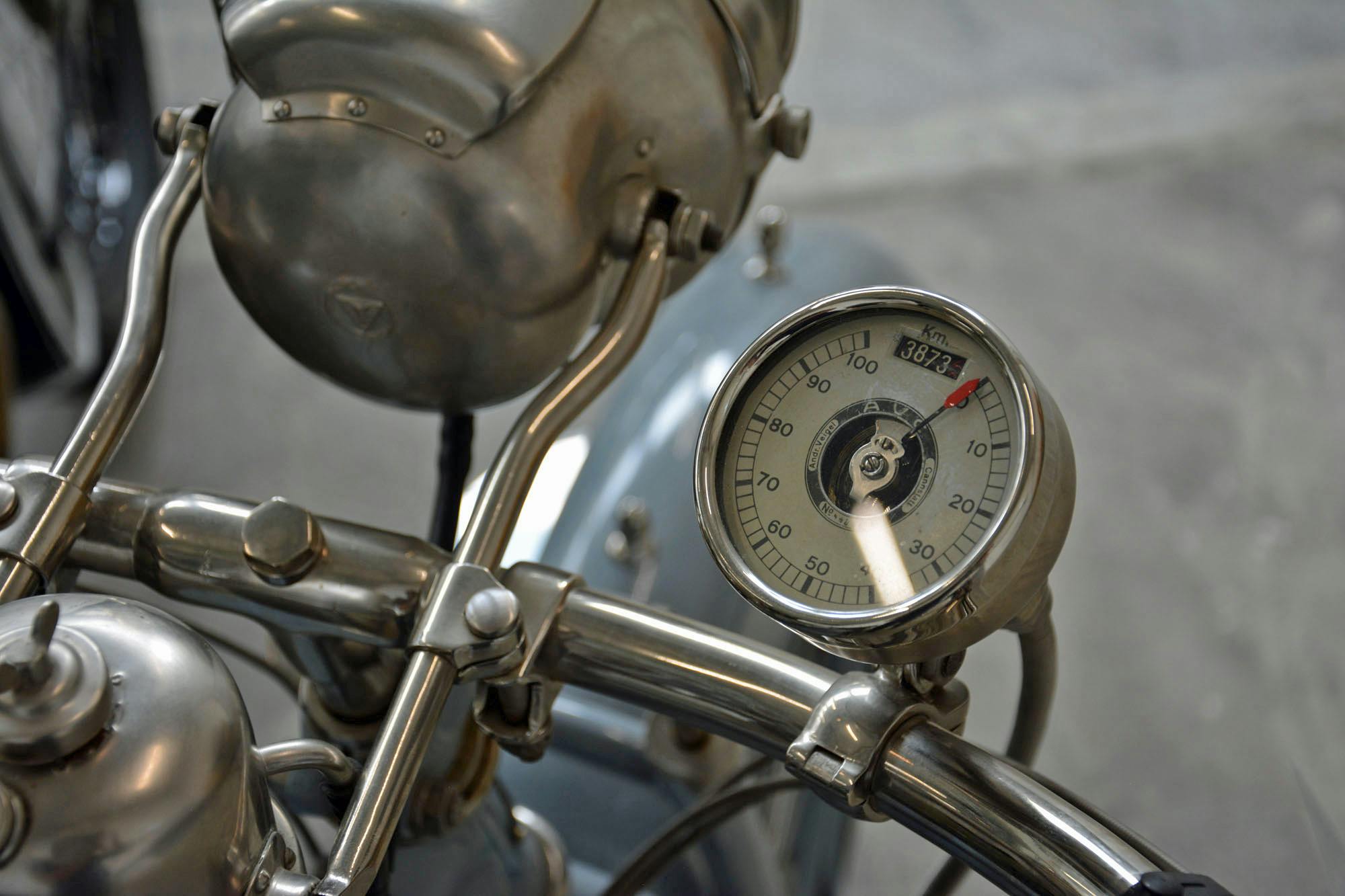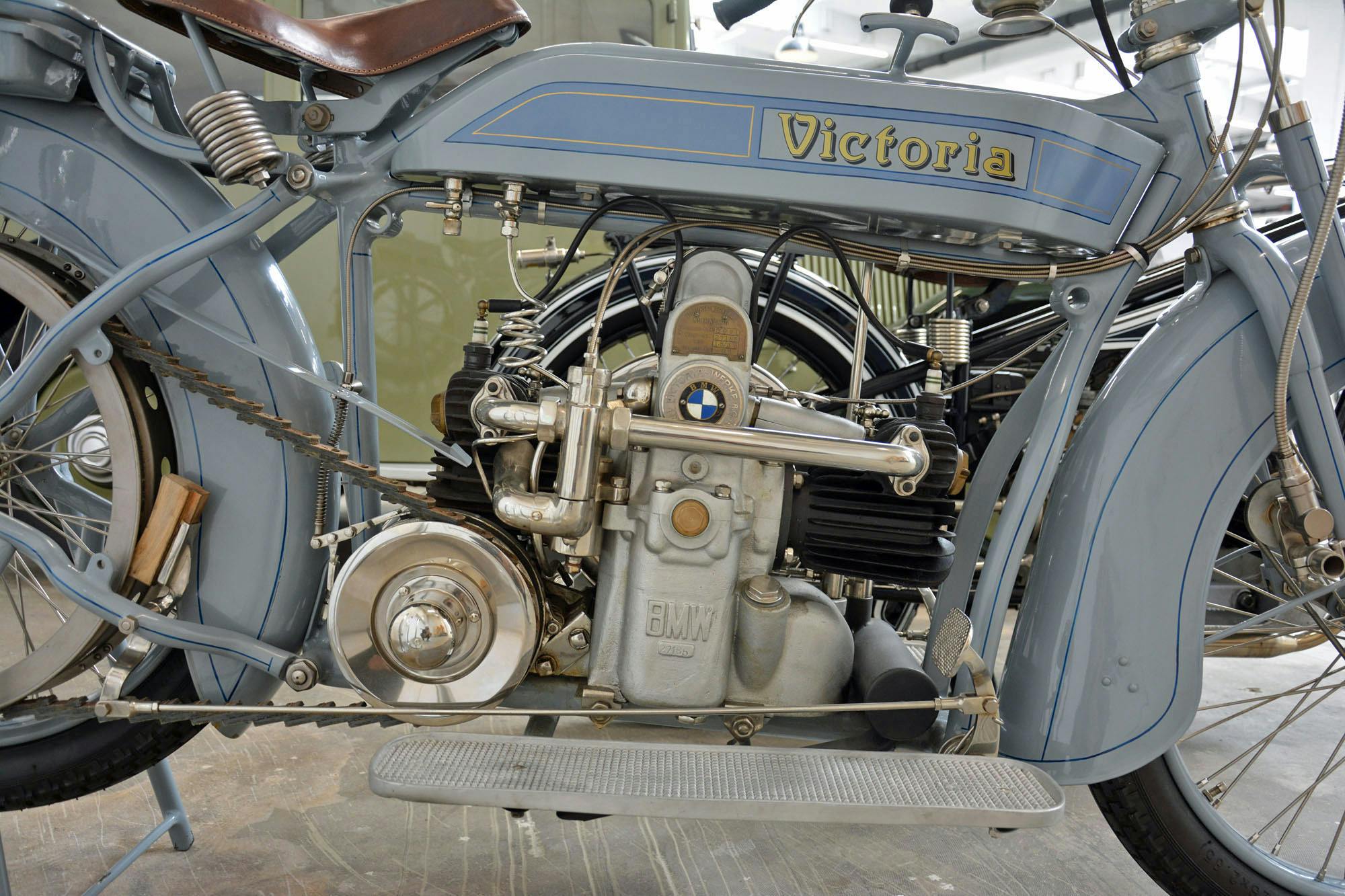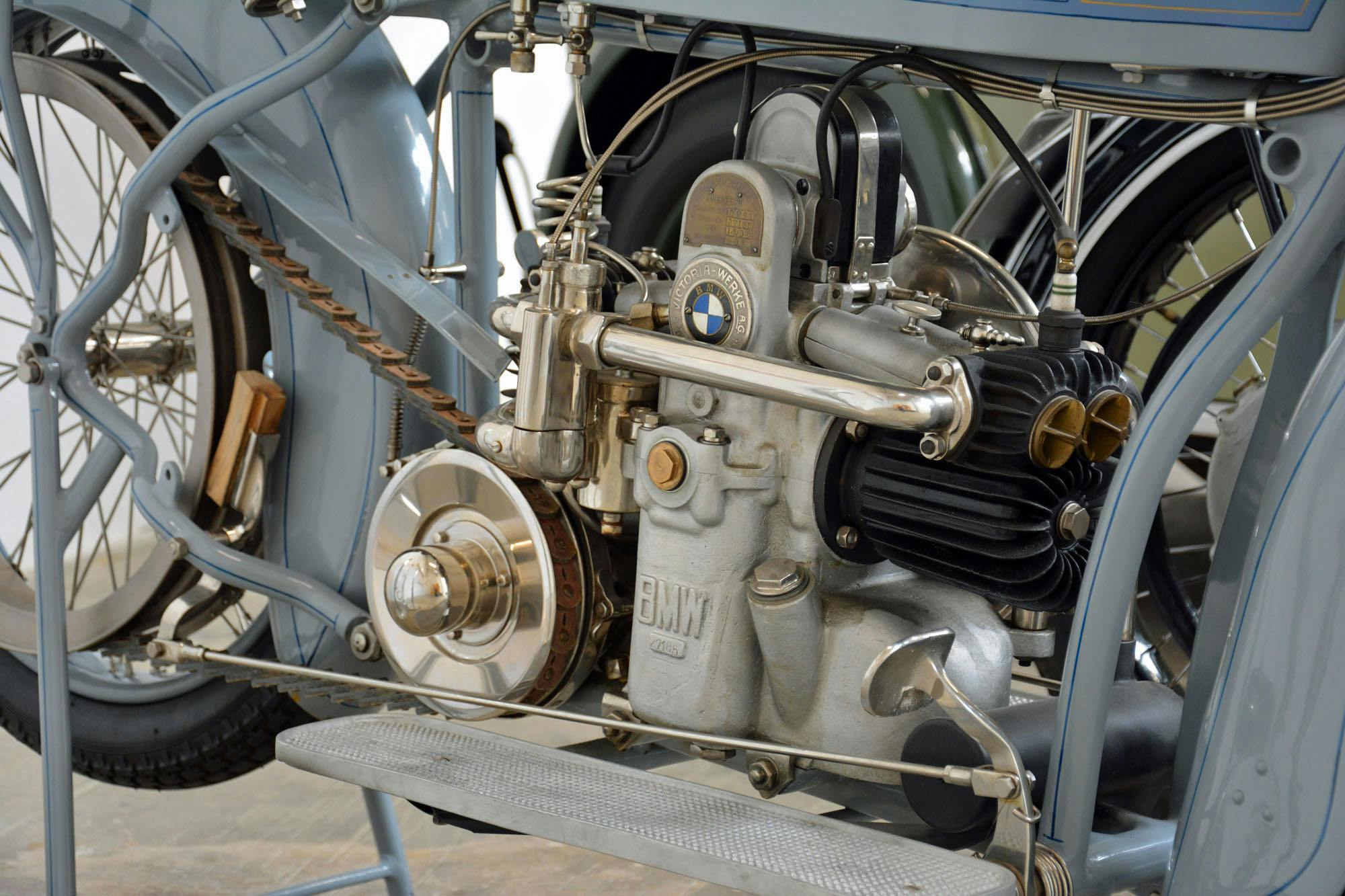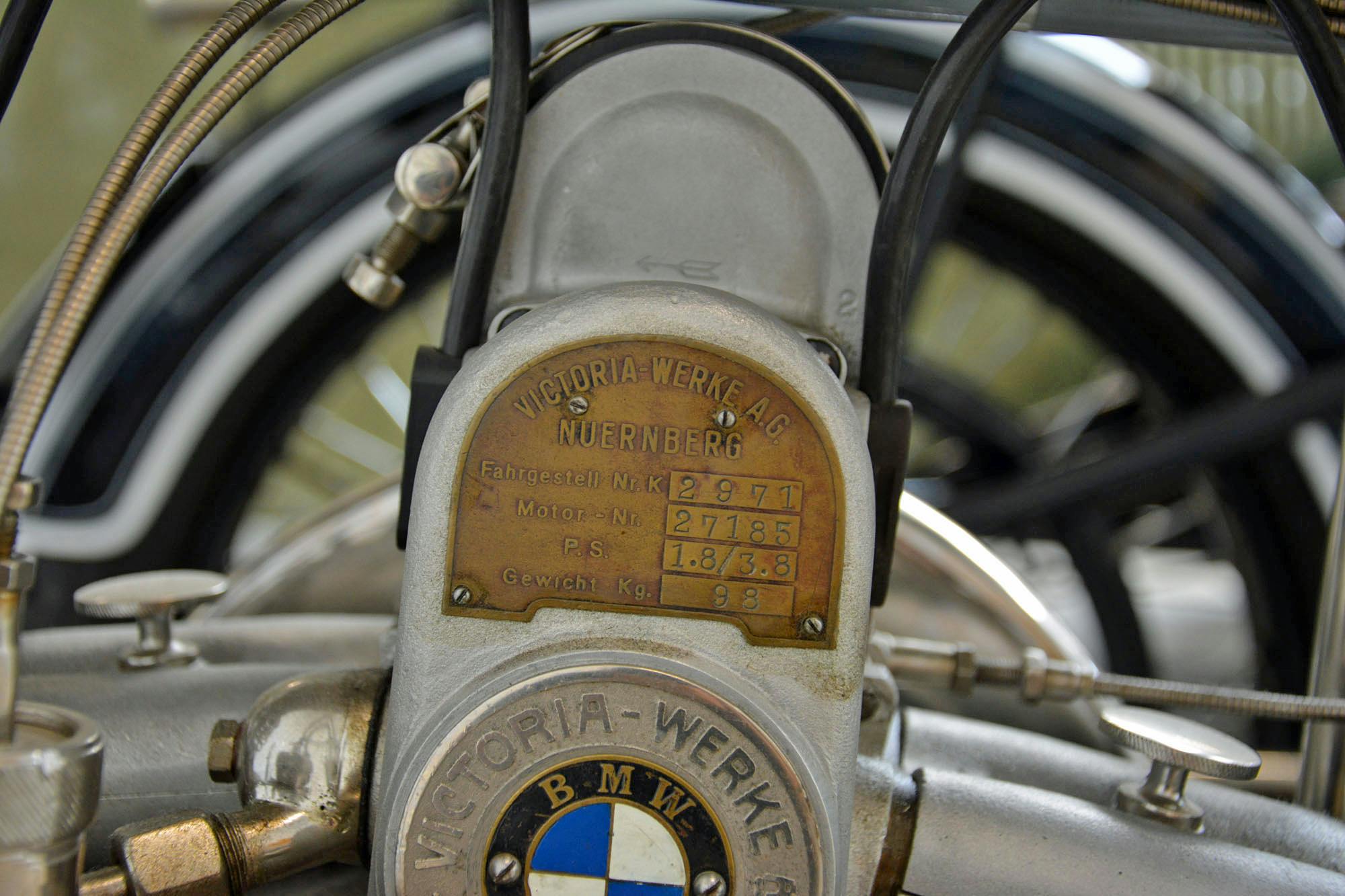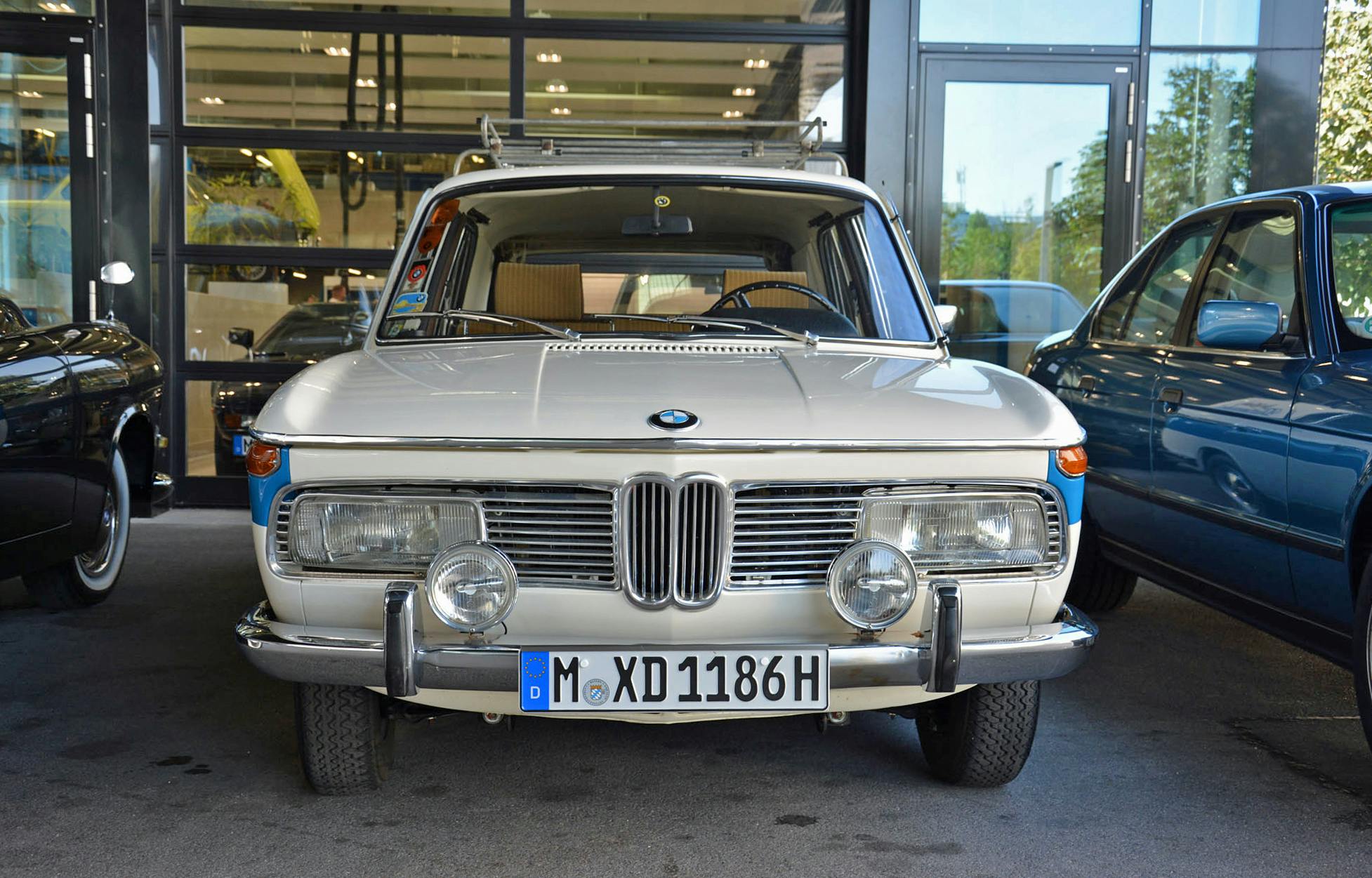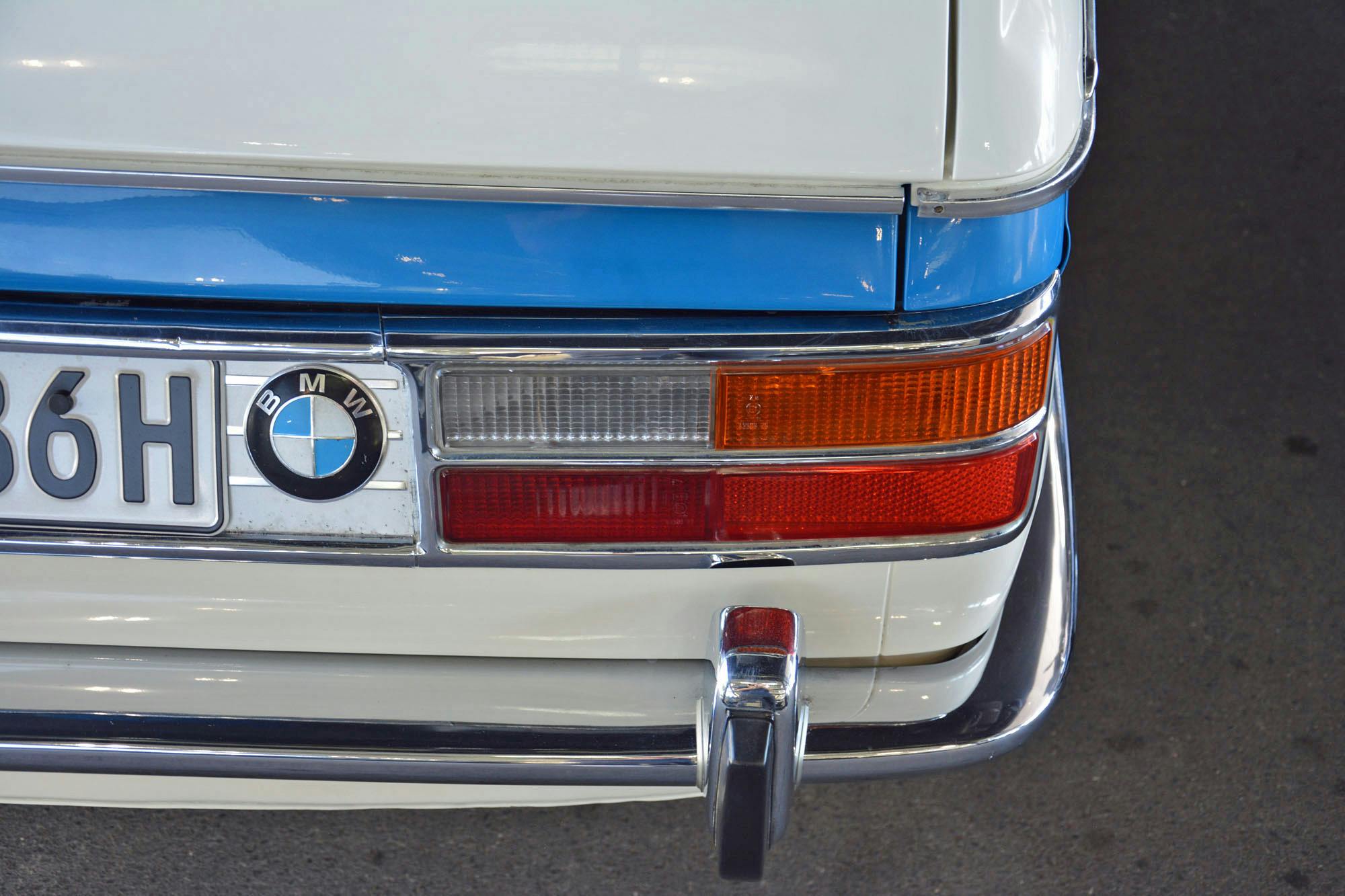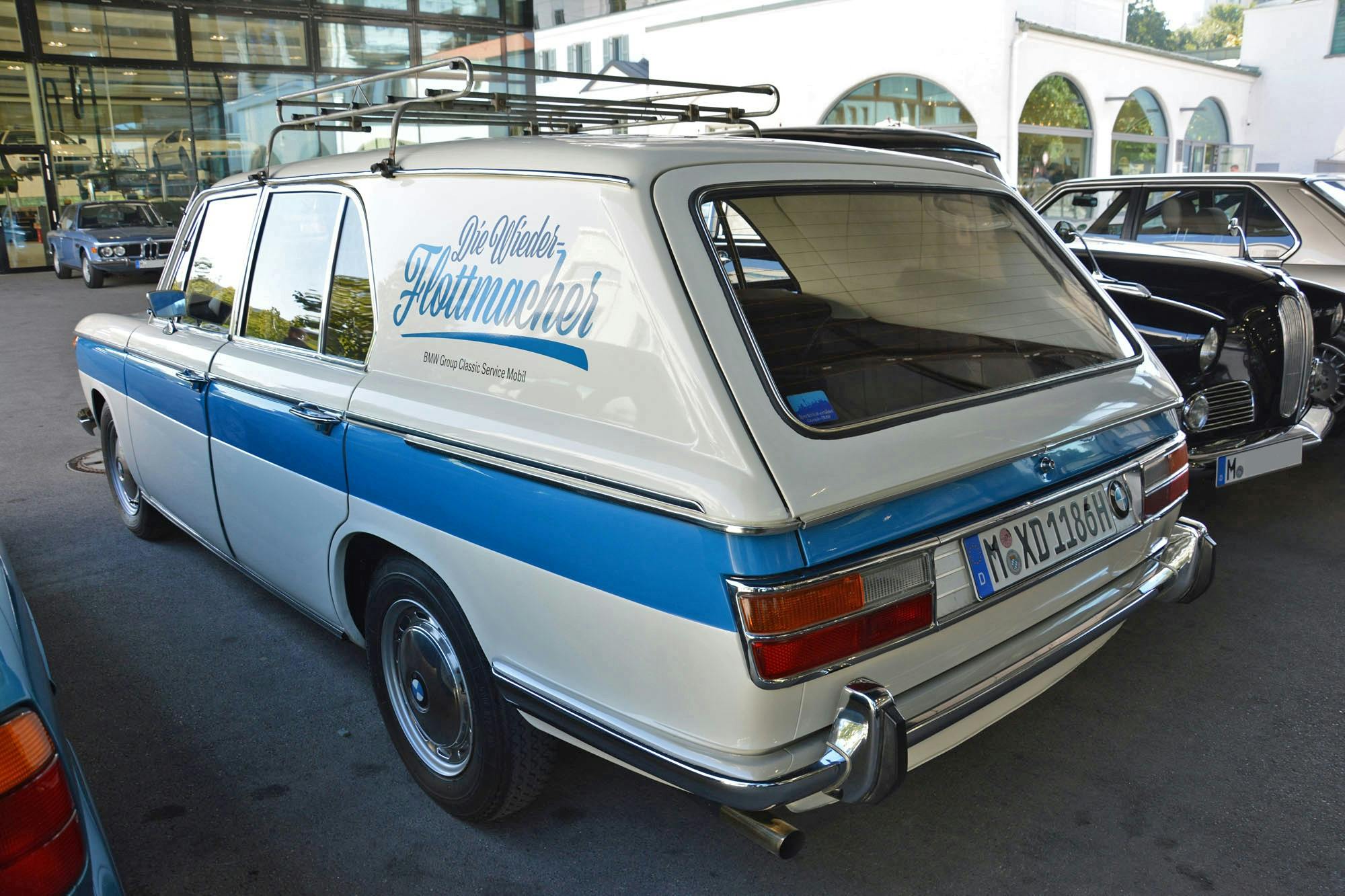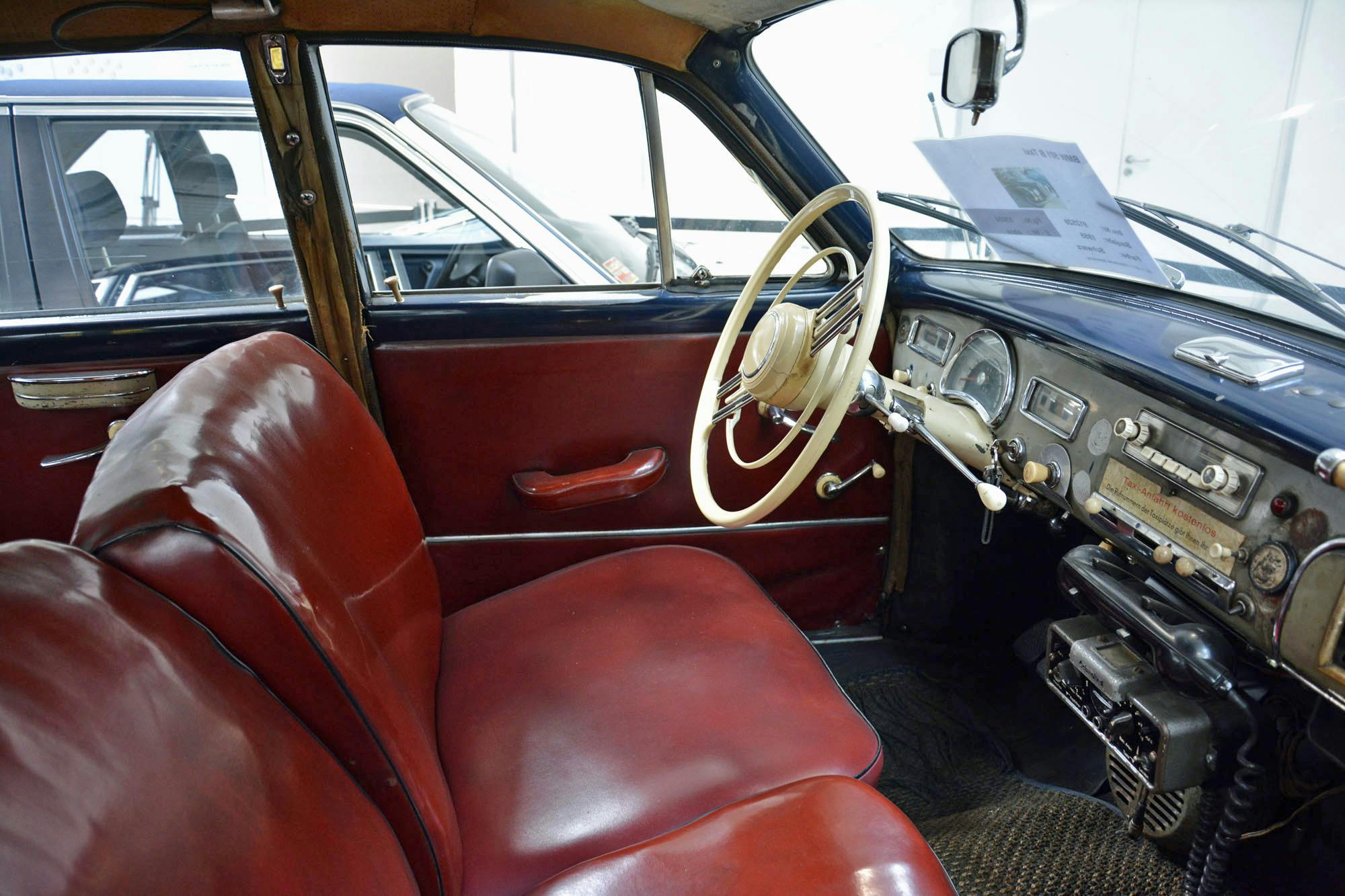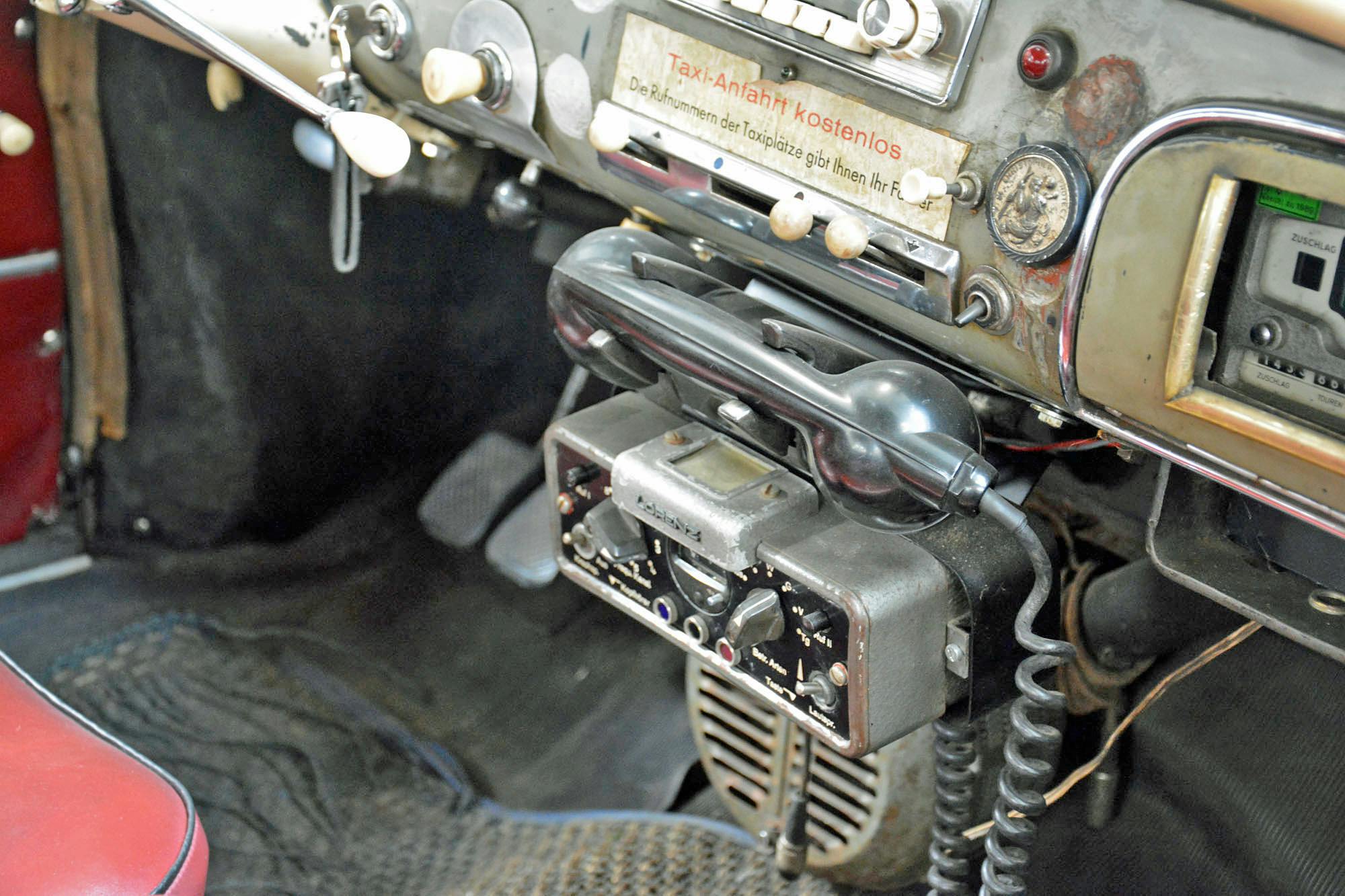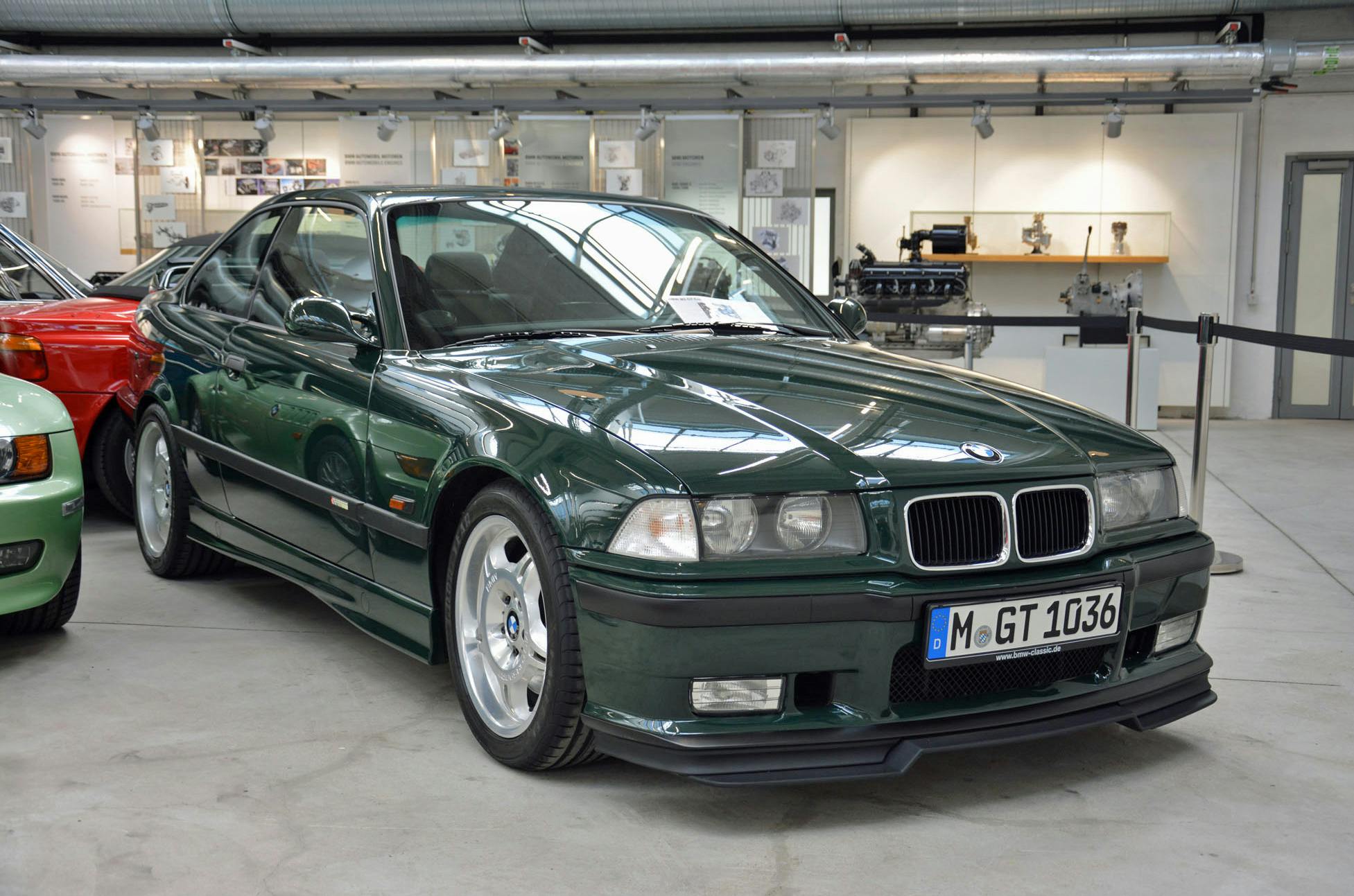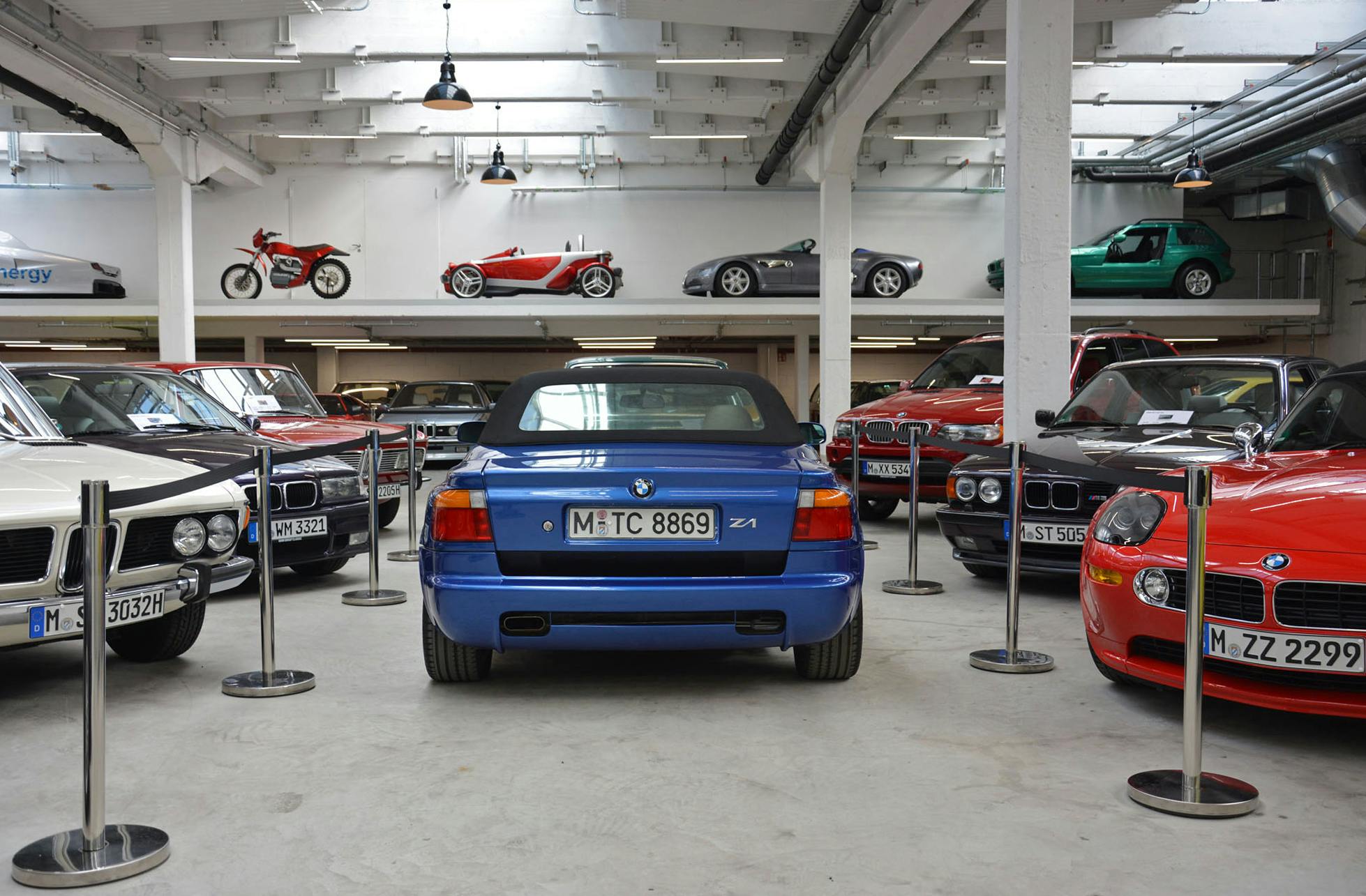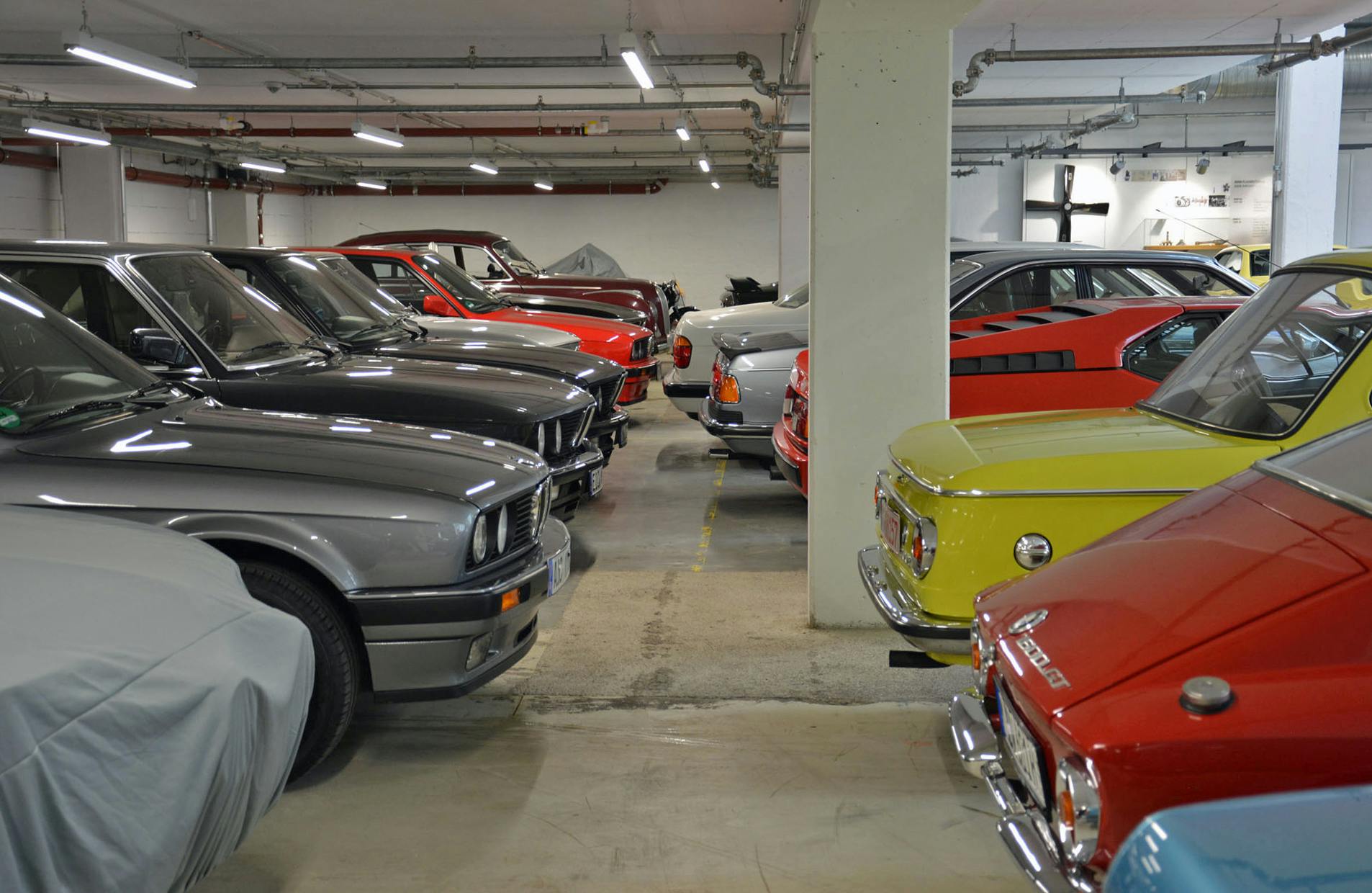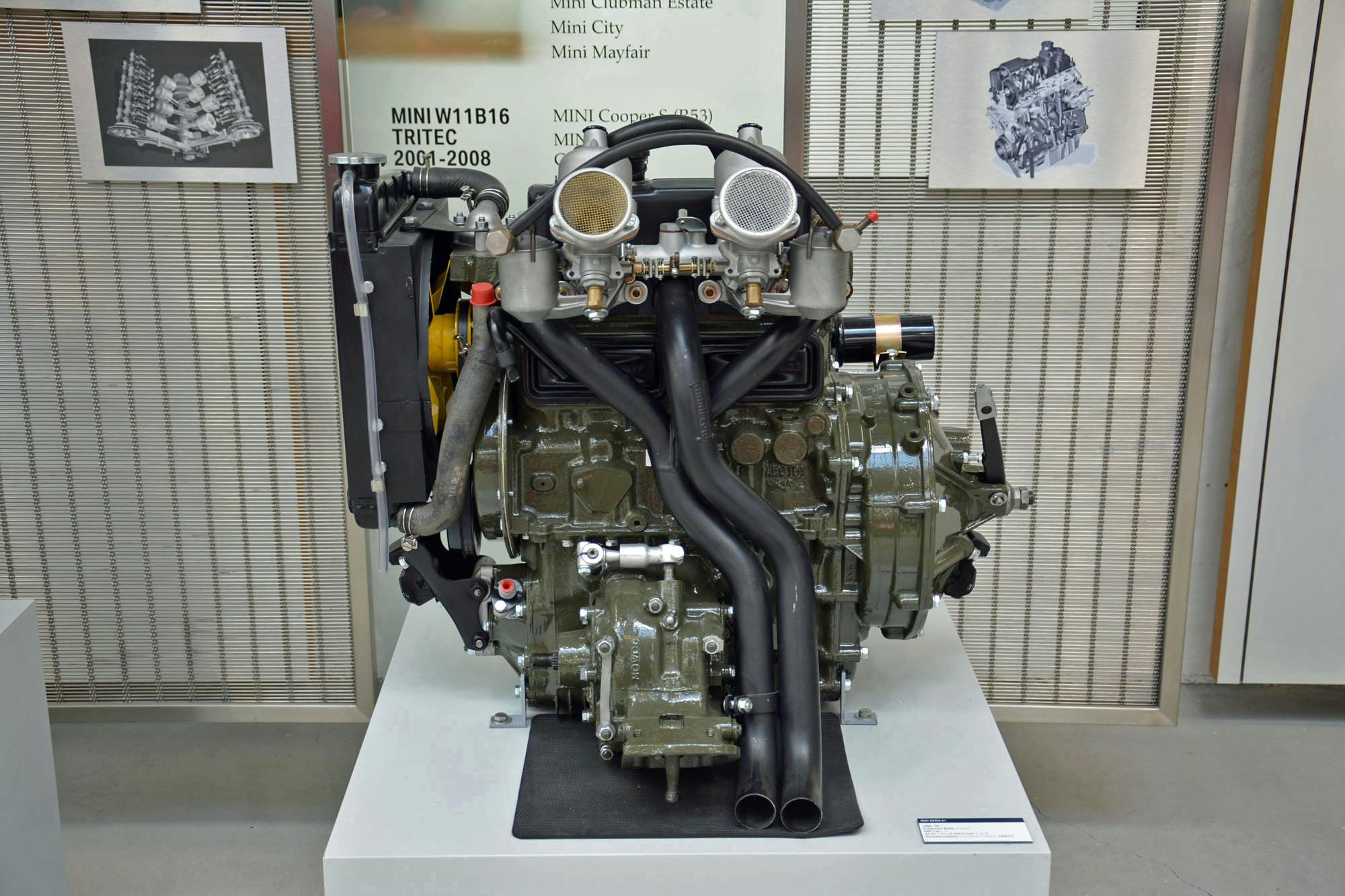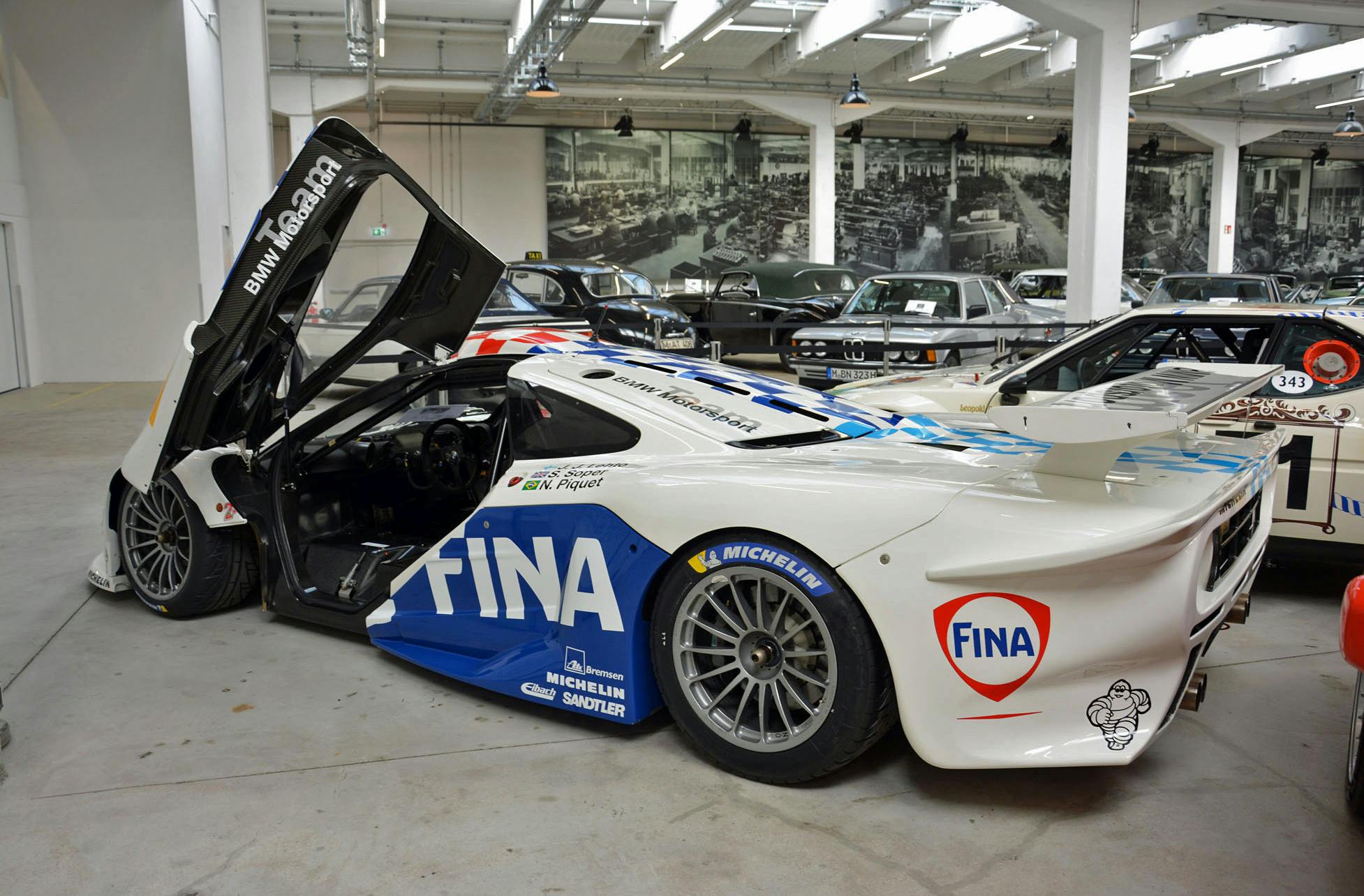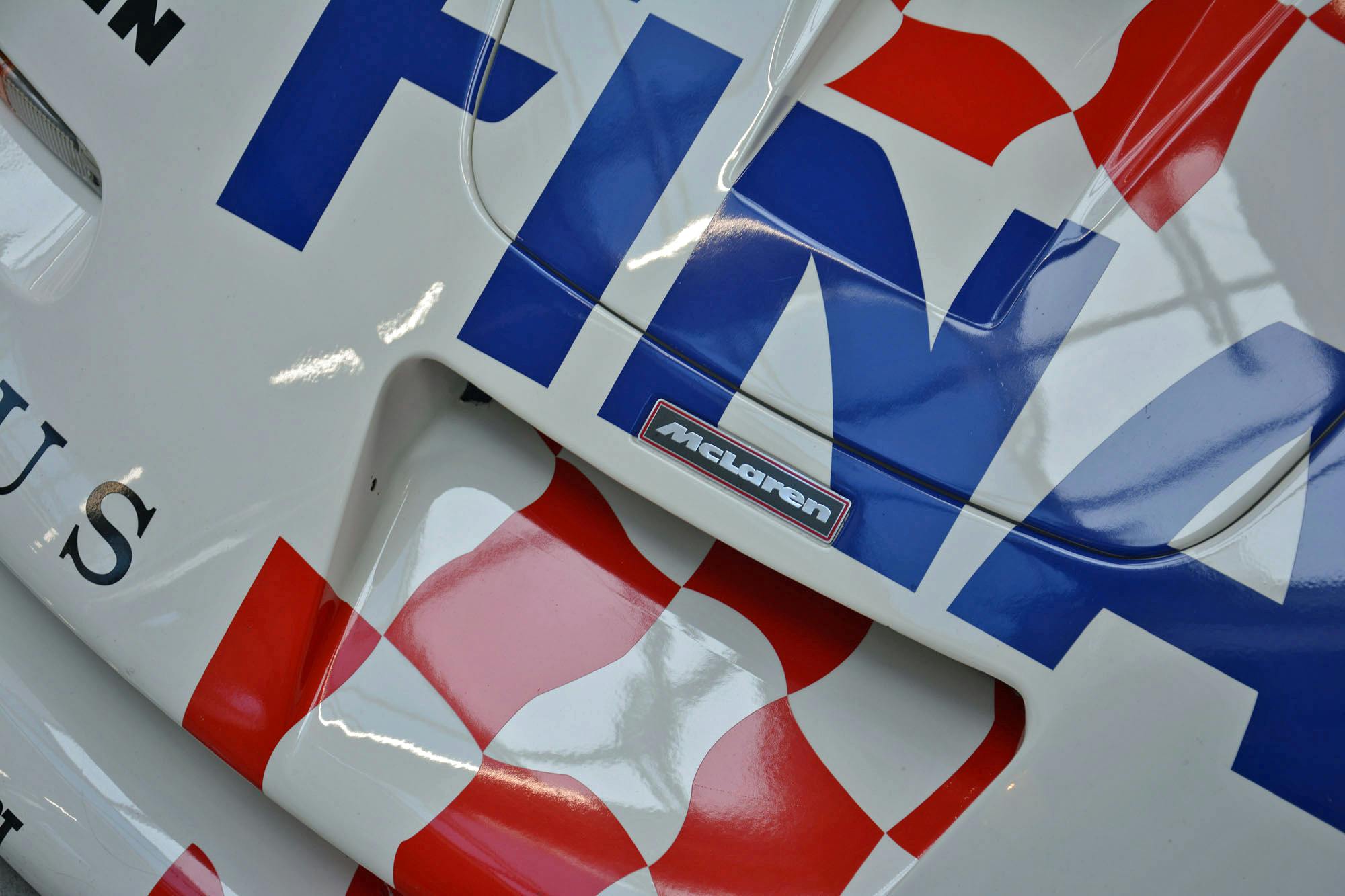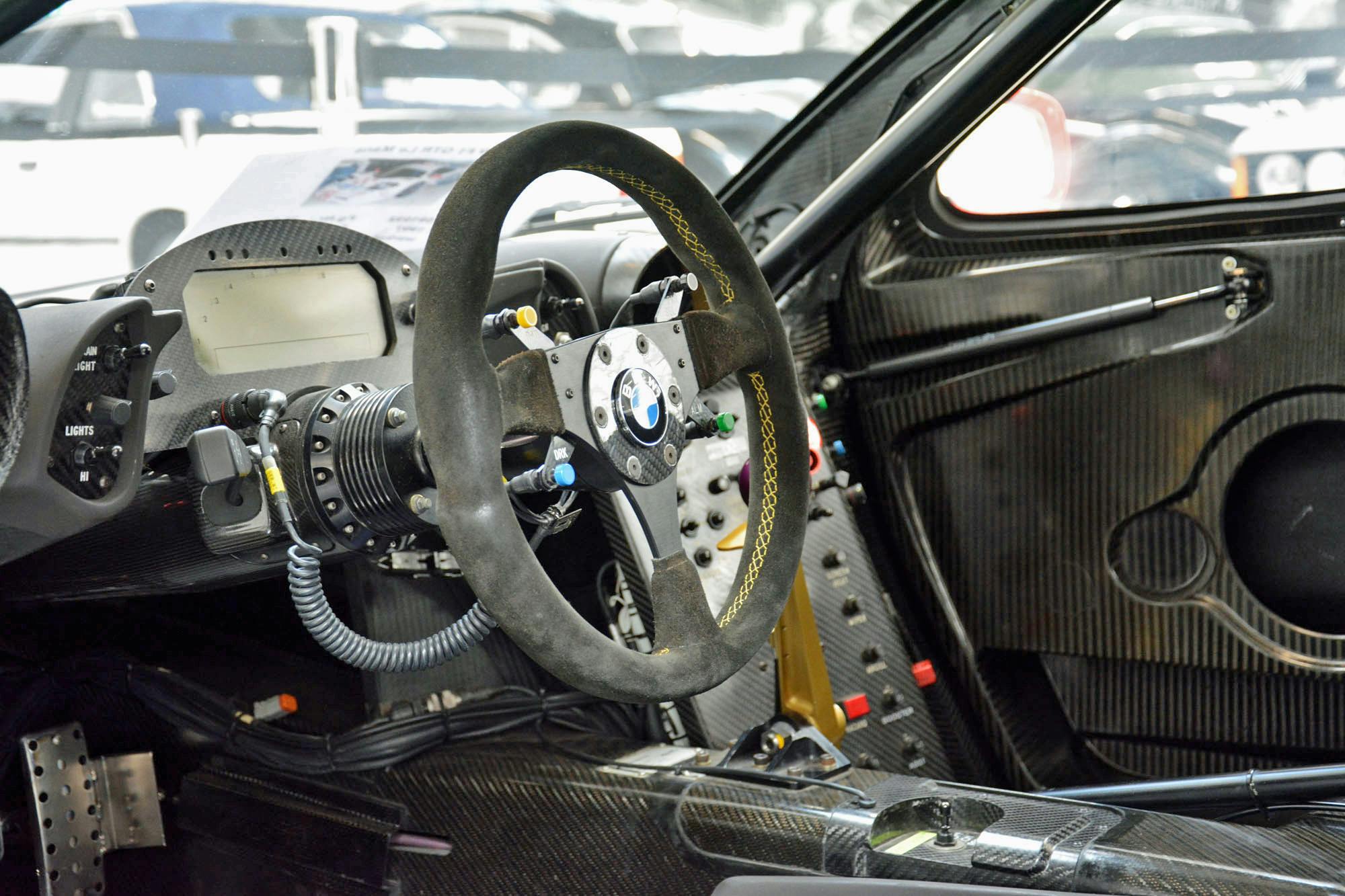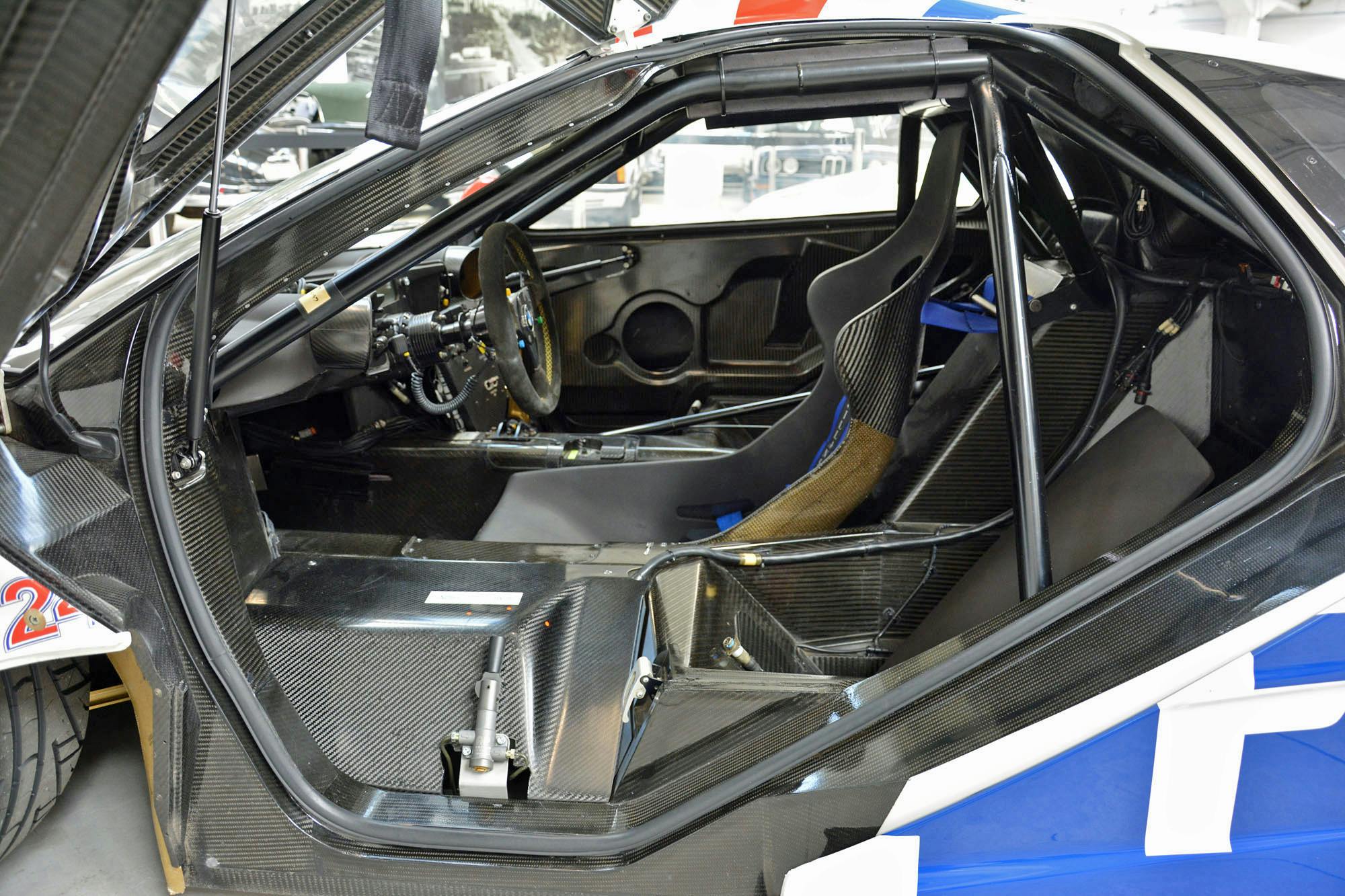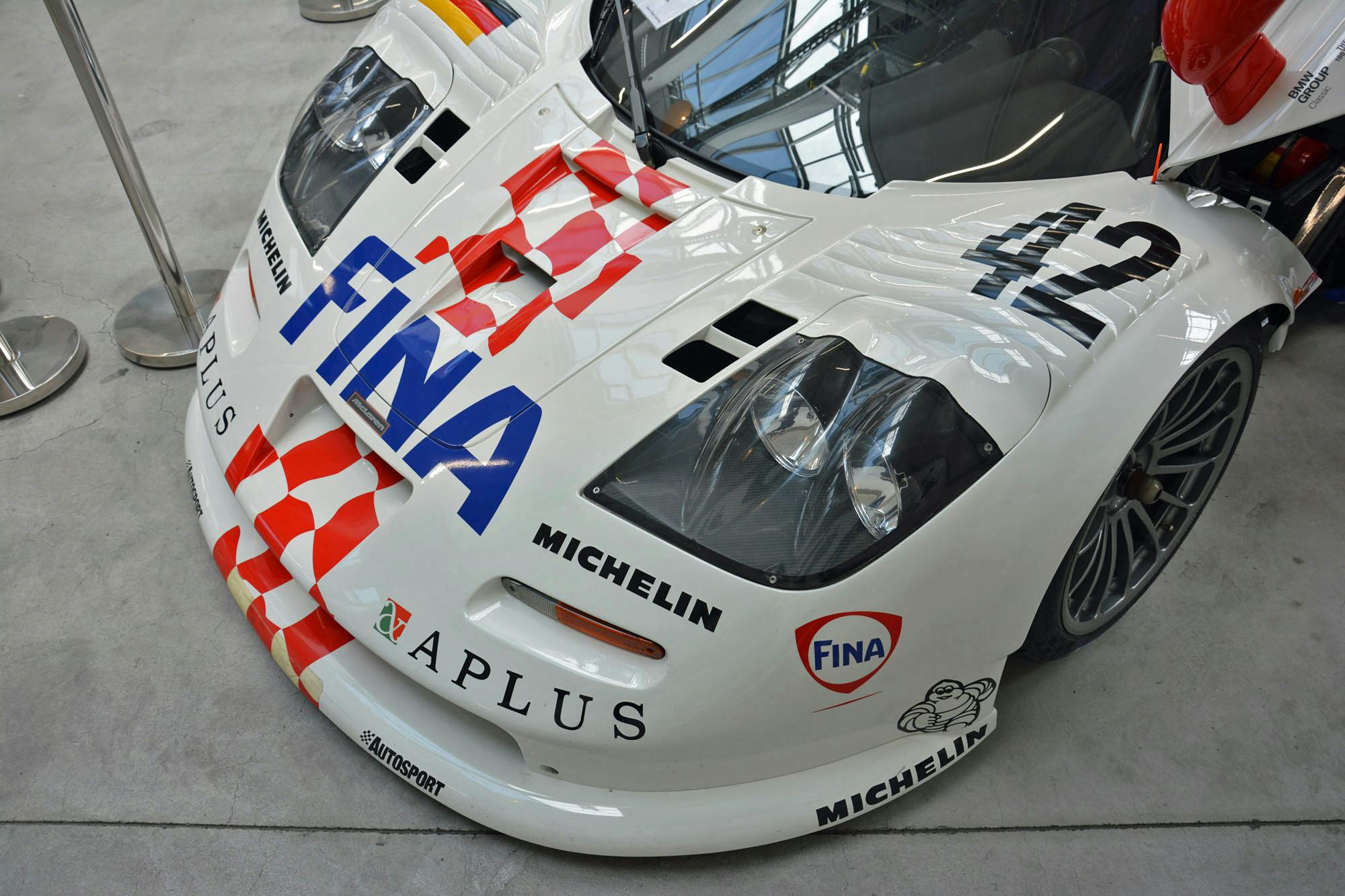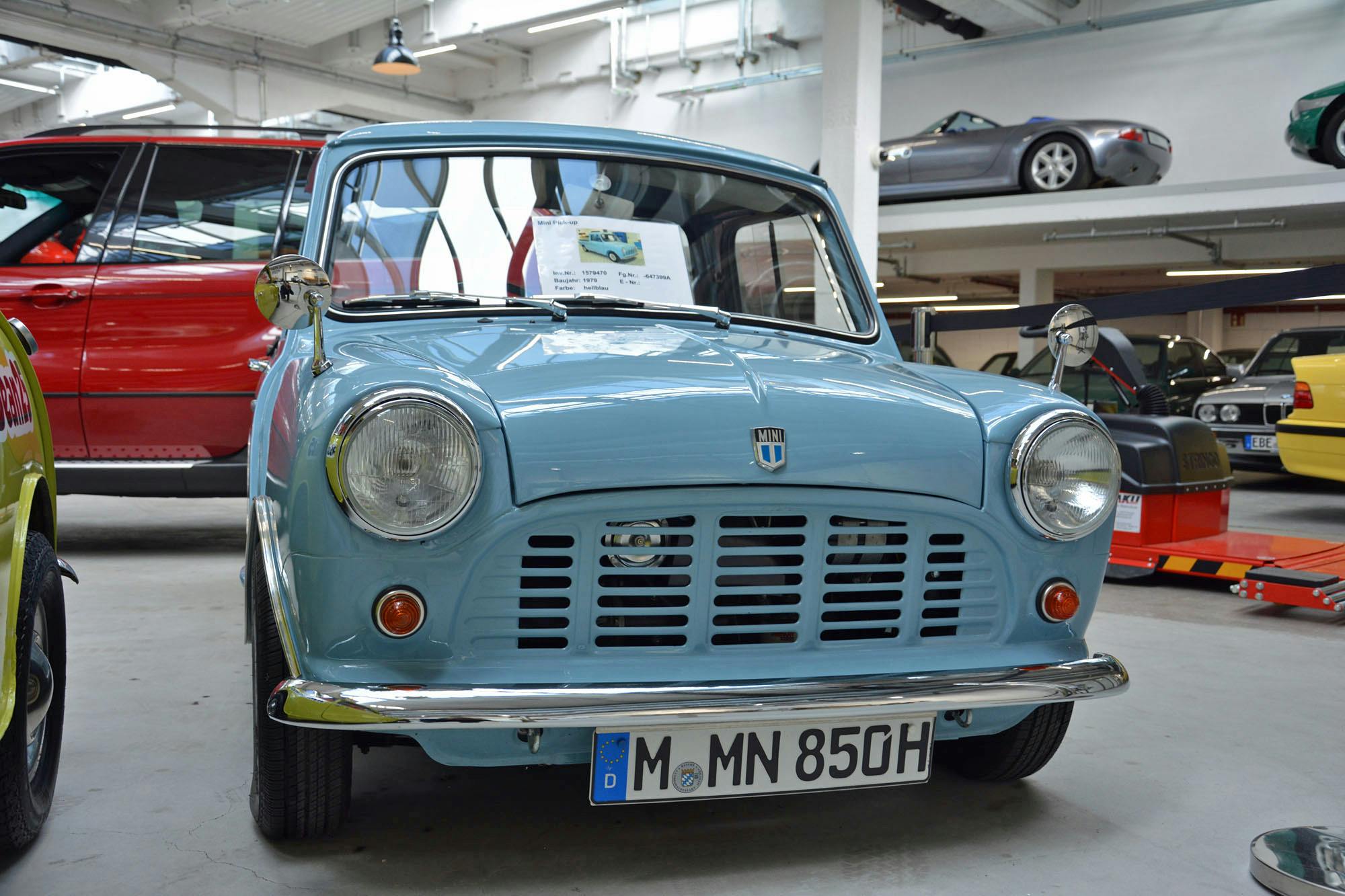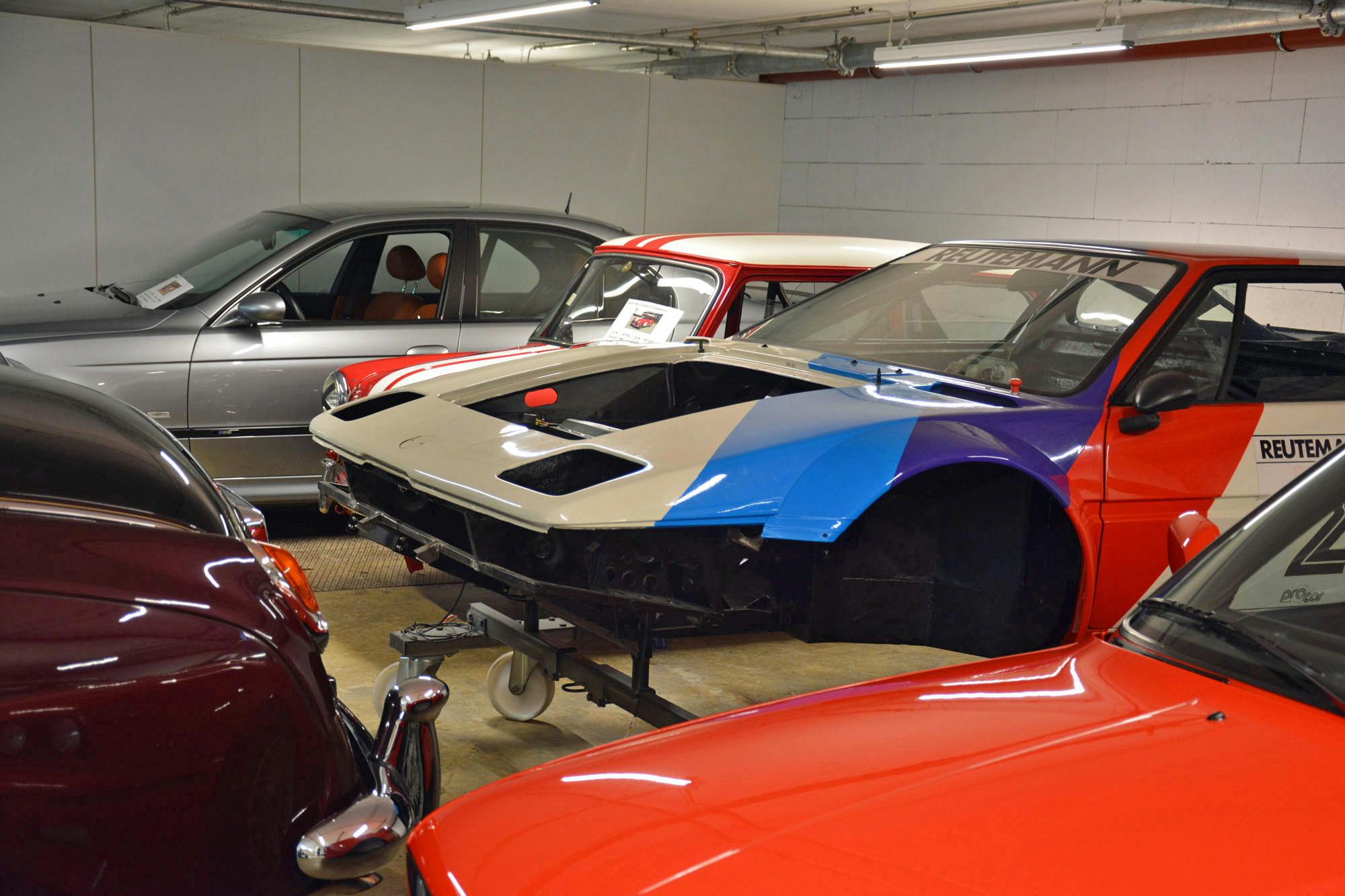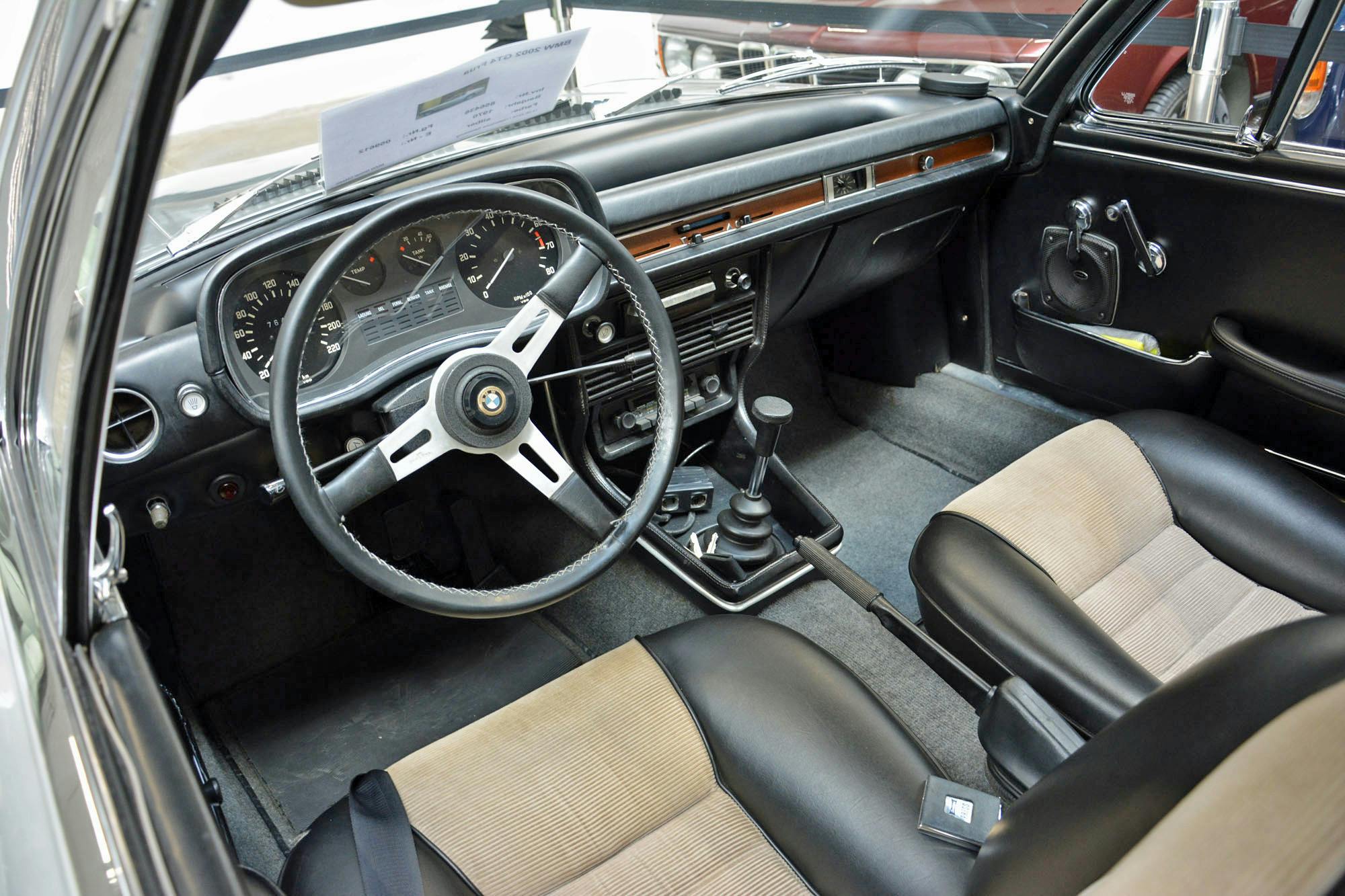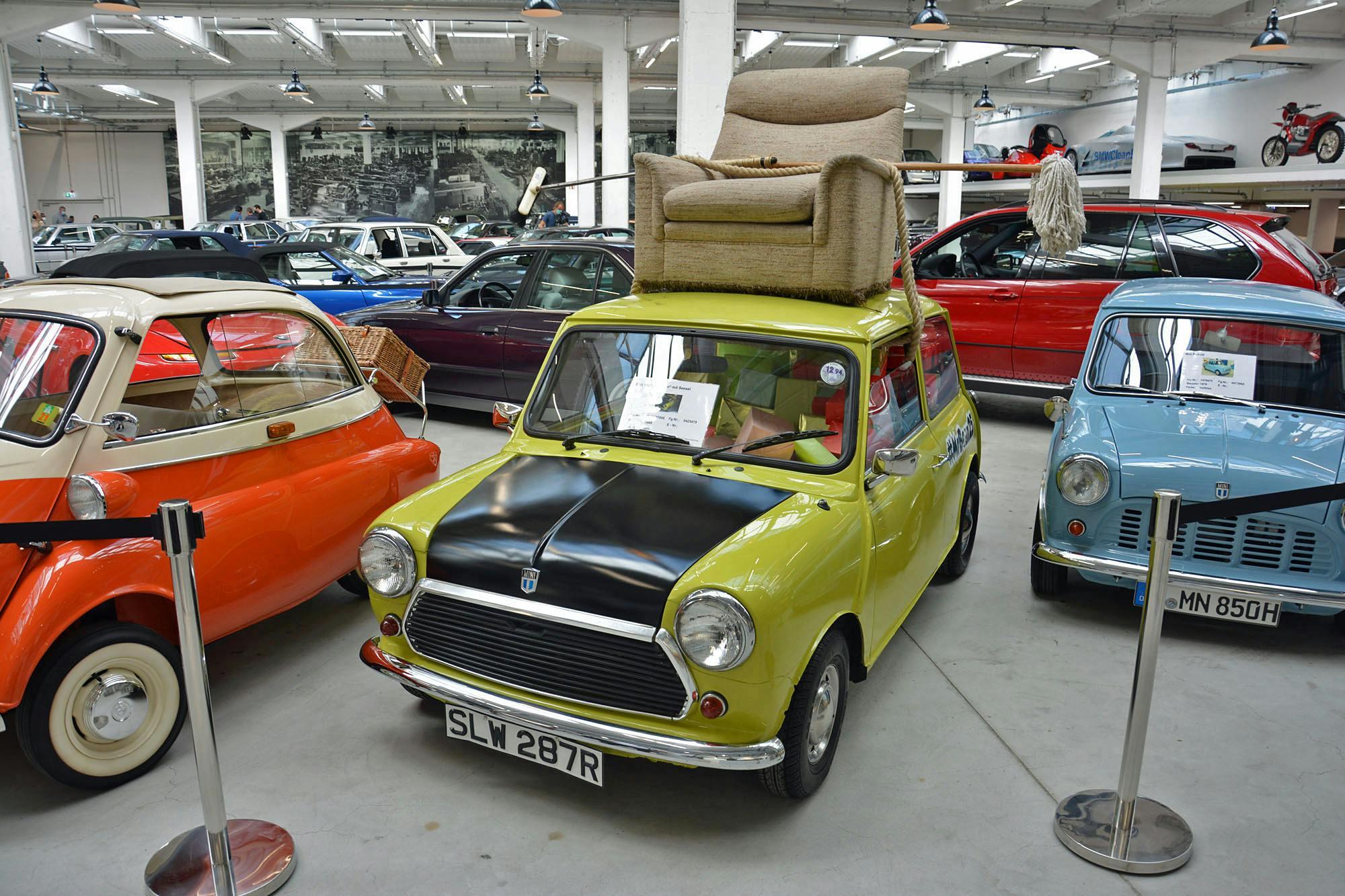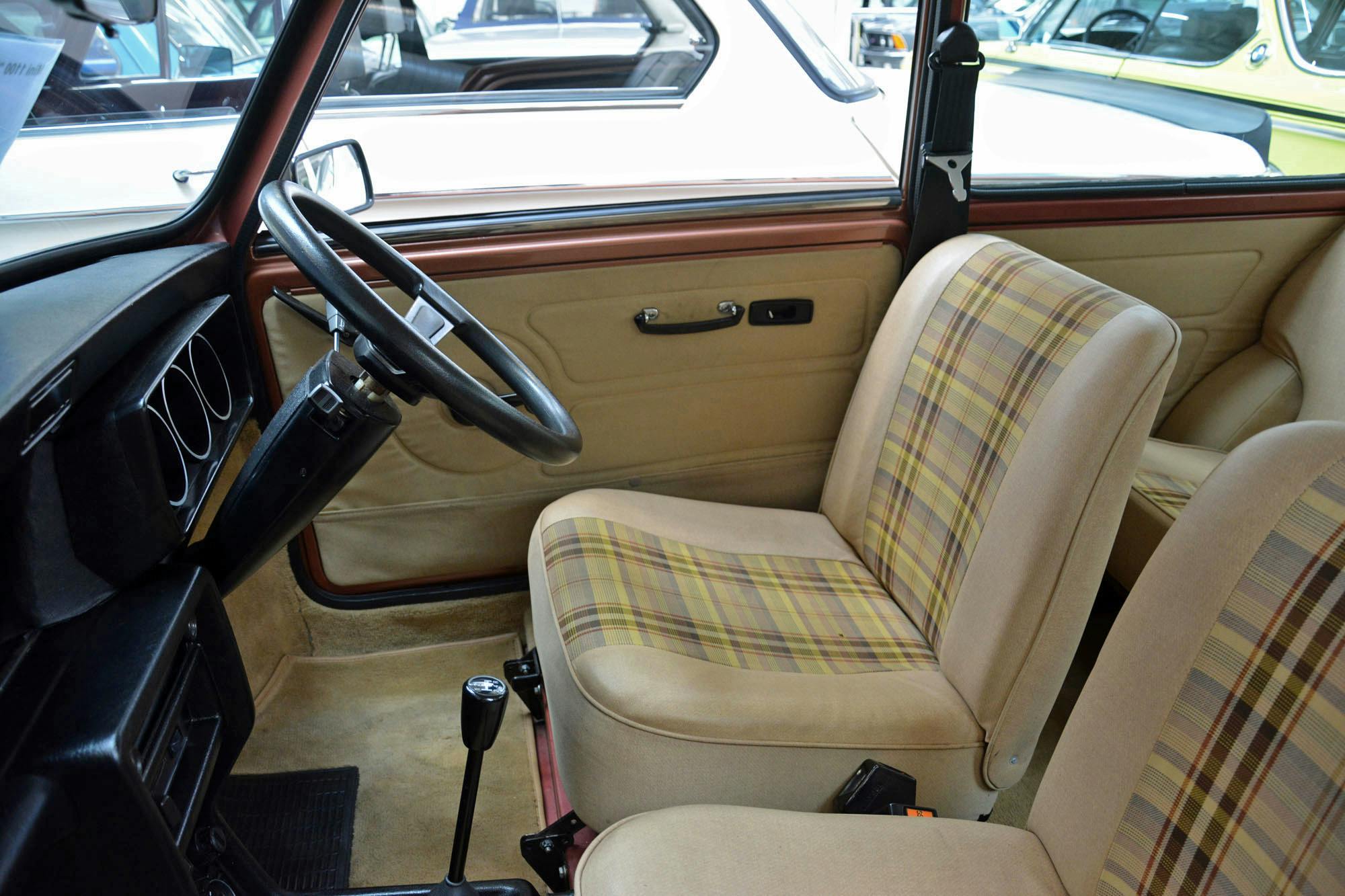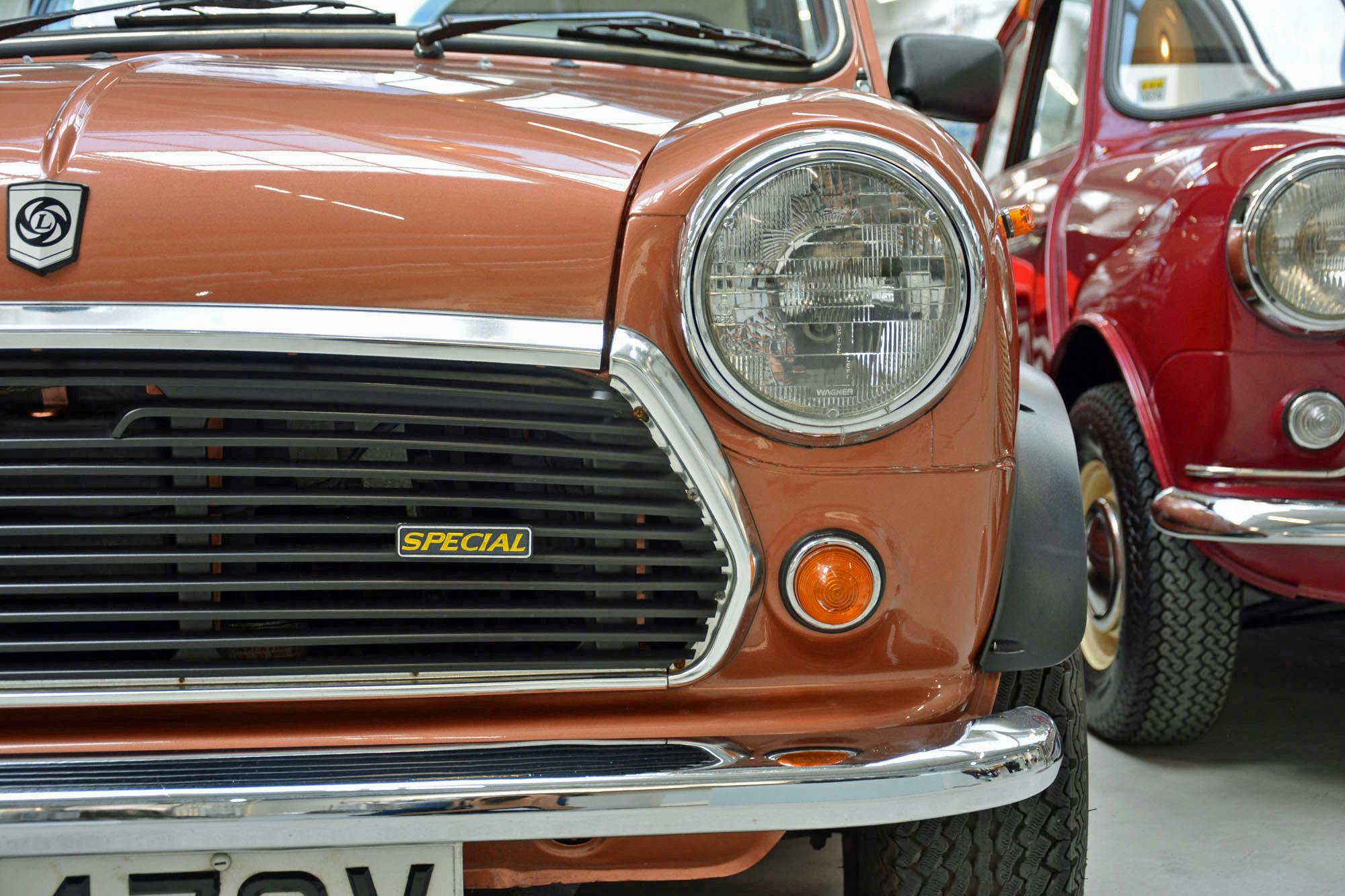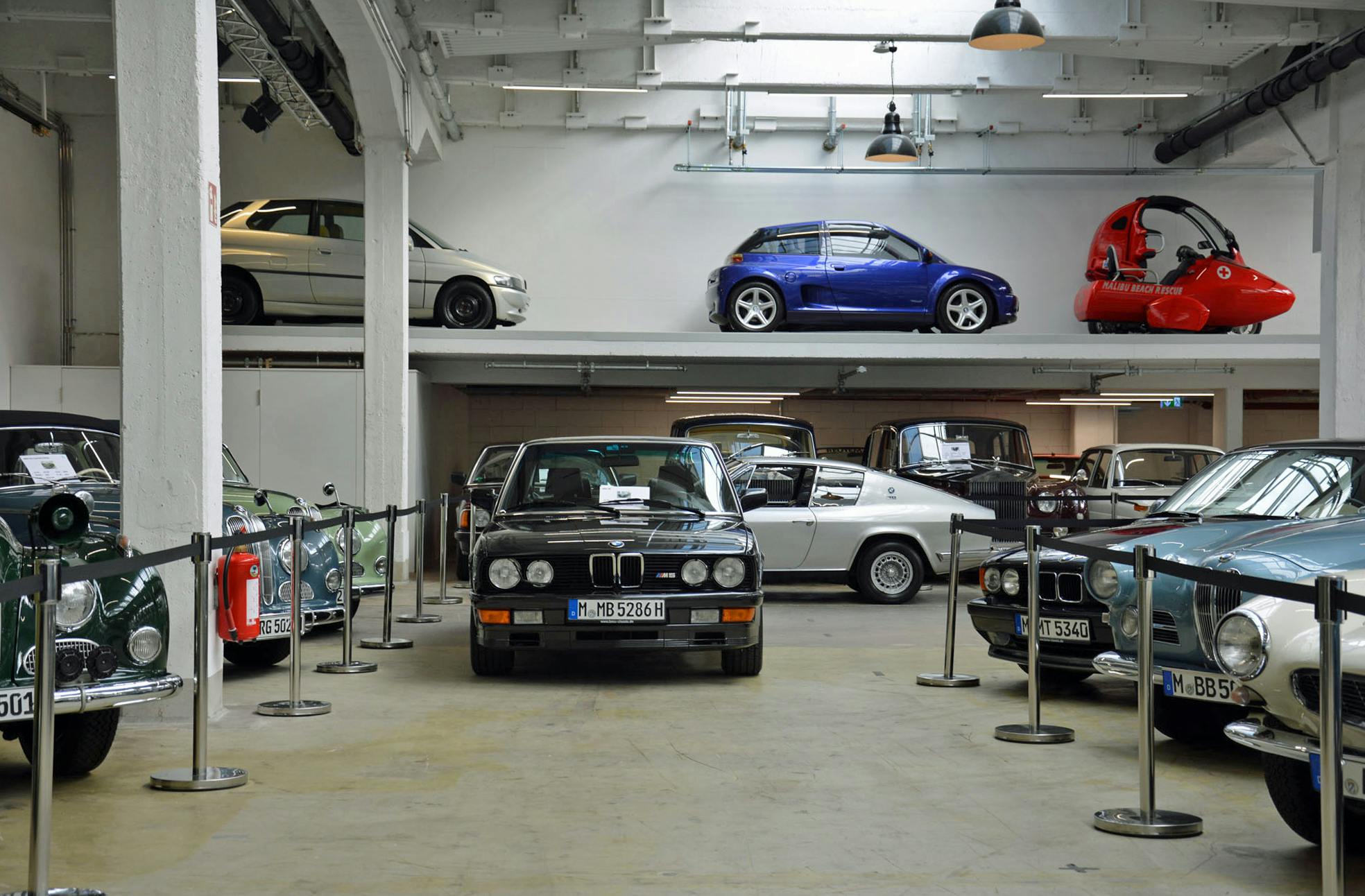Media | Articles
Long fallen quiet, BMW’s original Munich factory still houses legends
Visiting the BMW museum in Munich is like walking through a book of the firm’s greatest hits: the 507, the Isetta, a diverse selection of M cars, and race-winning motorcycles. But there’s another factory-owned collection in Munich that provides a more thorough look at BMW’s past. Open to the public by appointment, it’s part of the Classic Center and housed in the original BMW factory.
Nearly every part of BMW’s heritage is preserved and displayed here, ranging from the usual suspects to the obscure. You’ll find low-mileage examples of the E28 M5, the E36 M3, and the Z8, but it’s the oddities that really stand out. For example, take this black, V-8-powered 1955 501 B (a little-known car built from 1952 to 1962) that logged over a million kilometers by spending 15 years working as a taxi in Munich. Its owner gave it to BMW in 1970 and got a 1500 in exchange—not a bad trade! BMW restored the drivetrain and fixed a handful of rust spots but, broadly speaking, the car looks just like it did when it joined the collection 52 years ago. The taxi-specific equipment remains in place as well.
One of the most fascinating cars in the group is the 2002 GT4 designed by Pietro Frua. Known for his work with Ghia, and for the cars sketched by his own studio, Frua found his way to Munich via Glas, a small German firm that BMW took over in 1966. His elegant-looking GT gained kidney grilles and a 1.6-liter four-cylinder engine to become the BMW 1600 GT shortly after the merger. Production ended in 1968 after less than 1300 BMW-badged models were built, and Frua immediately started drawing a successor.
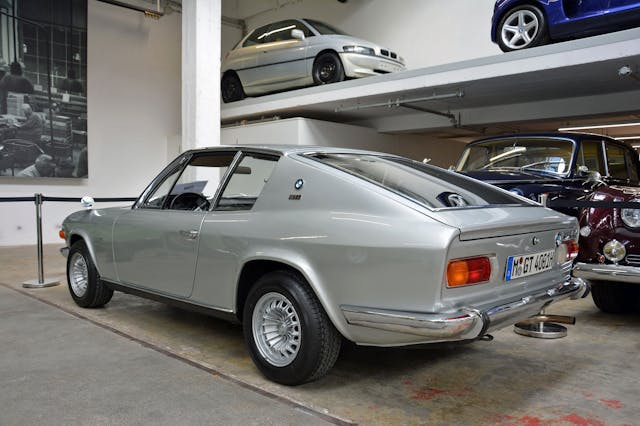
He used numerous off-the-shelf parts to keep production costs in check. As its name implied, the 2002 GT4 was based on the 2002, though it wore a more modern-looking front end and a fastback-like roof line with—this was a big deal at the time!—a large hatch. The front turn-signal lenses and the exterior door handles came from the BMW E9, while the rear-light fixtures were borrowed from the Alfa Romeo 1750. The end result was an elegant, spacious coupe with room for four people and their gear.
Frua built two examples of the GT4. Based on a 1968 2002 ti, the first was introduced at the 1969 Paris auto show, where it caught the attention of BMW executives. Production was considered—the firm reportedly believed it could sell between 3000 and 5000 units annually—but the project was shelved. It’s not too far-fetched to speculate that upper management knew the 02-based Touring was around the corner and realized such a vehicle would overlap with the GT4 in several key areas. The first example was wrecked in the 1980s, sold a number of times, and it found its way to Japan in need of a restoration.
Marketplace
Buy and sell classics with confidence
The second GT4 led a less eventful life. Presented at the 1970 Paris auto show, and displayed at the Geneva show the following two years, it was sold to a Swiss enthusiast in 1972 and remained in his possession until 1990. Its second owner sold it to BMW’s Classic Center in February 2002. You may have seen it: It has attended events all over the world since returning home and receiving a full restoration.
Frua’s GT4 isn’t the only rare bird housed in the old factory. Several one-off concepts are perched on a mezzanine, like the green 1988 Z1 Coupe and the blue 1993 Z13. Race cars are relatively well-represented as well, including one that has never worn a BMW roundel on its nose. McLaren’s F1 GTR made England proud when it competed in the 24 Hours of Le Mans during the 1990s but its heart came from Munich: an evolution of BMW’s 6.0-liter V-12. The example displayed in Classic Center dropped out of the 1997 edition of the event but another F1 GTR took third overall (and second in its class) that year.
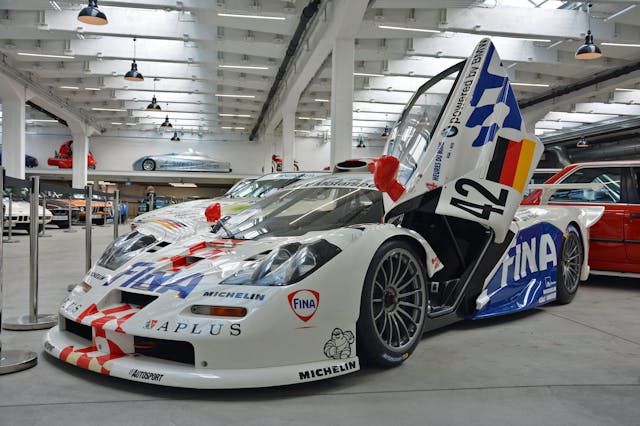
Mini enthusiasts will have a field day in the Classic Center as well. Several vintage models are displayed, including a 1979 pickup finished in a gorgeous shade of blue called hellblau. The 1979 Special model is a rare treat because only about 5100 units were made to celebrate the car’s 20th anniversary, but few Minis are as well known as the ’89 model driven by Mr. Bean. It’s not the car from the show, since many were used and quite a few were destroyed, but it’s the so-called “armchair Mini” that Rowan Atkinson drove sitting on the roof. It features several modifications like a second (seemingly functional) steering system.
At the other end of the BMW-powered spectrum, the Victoria KR 1 was fitted with a 494-cc flat-twin that was mounted longitudinally (!). It’s a wonderfully primitive machine: The air-cooled, 6.5-hp engine spins the rear wheel via a chain made of numerous individual pieces of upholstery that are riveted together, and a mundane piece of wood serves as the rear brake pad. Only a small handful of BMW-powered Victoria motorcycles were built between 1920 and 1923. BMW stopped providing the company with engines when it released its first motorcycle, the R32, at the 1923 Berlin auto show.
It’s a lot to take in—even dyed-in-the-wool BMW enthusiasts are sure to learn something. My favorite? Hard to say. How about the 1966 2000 station wagon parked in front of the building? It was built for BMW’s racing department by a coachbuilder that no longer exists, according to the company. It wasn’t a one-off, but it is the only example known to survive in 2022, and it was fully restored a few years ago.
Hungry for more? We can’t teleport you to Munich, but flip through this gallery and let us know your favorite pick in the comments below.
